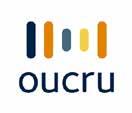














The OUCRU Public Engagement team conducted a survey of researcher’s attitudes towards public and community engagement (PCE) in 2015. Researchers were increasingly aware of the need to incorporate public and community engagement (PCE) in their work, but many were uncertain or what PCE they could do, and often did not have ‘extra’ funding to put towards it. Although there are avenues for competitive funding for engagement many researchers were put off by lengthy application processes, low success rates and the large scale of the projects that seem to be successful. In addition, many Vietnamese junior researchers are not primary investigators (PI) on studies and therefore not in a position to apply for international funding. Up to this point much of the engagement at OUCRU sites was led by the PCE team, although many researchers were happy to contribute.
The OUCRU PCE Seed Award scheme was developed to provide start-up grants enabling OUCRU researchers, at any point in their careers, to lead and conduct engagement. The scheme is designed to be easy to apply for and with a quick turnaround time. Small and pilot projects are welcomed, and innovative projects encouraged.
The Seed Award scheme is open to researchers across all the OUCRU sites (Nepal, Indonesia, Hanoi and HCMC), to enable and promote researcher-led public engagement. Small grants of up to $5,000 USD were competitively awarded to enable engagement activities and projects that enhance biomedical research. Since 2019, the award value was increased to $10,000 USD to enable more ambitious projects. Calls for applications are issued twice a year and applications are reviewed by a panel, including external engagement experts. The panel looked for feasibility, quality of engagement, relevance to OUCRU research and how it would enhance the researcher’s capacity and interest to engage further.
The award scheme started in September 2015. Over six years, there have been 60 applications and 41 successfully awarded projects to a total value of $233,395 USD. To date, (Sep 2021) 18 projects are completed, 21 projects are ongoing and two applications were withdrawn when the application left OUCRU.
A PCE advisory team was set up to support researchers to design their projects and put together an application. Successful awardees were offered a surgery with the Seed Award coordinator to develop an evaluation and implementation plan. In 2018, the Thailand and Vietnam Wellcome Asia Africa Prorammes (AAPs - MORU and OUCRU) held a regional meeting for Seed Award recipients to showcase their work and join training on how to publish engagement projects and develop a theory of change. Besides that, we also provide quarterly meetings to host discussions around public and community engagement topics, deliver trainings to enhance the capacity of researchers doing engagement, and furthermore to build the networking for researchers who have the same interest in public engagement.
This report is a summary of the Seed Award projects from 2015-2021 and highlights the range of approaches OUCRU researchers have taken to engage the public and communities with their research. Project leads were encouraged to evaluate the activities and most have taken a light touch approach, appropriate for the scale of the projects – their evaluations are included in each report. In order to evaluate the Seed Award scheme we have looked at metrics and evidence of changes in attitude towards PCE. Our conclusions and suggestions are included at the end of this report.

Dr Nguyen Thanh Thuy Nhien, Post – doc research fellow, Malaria and Ms. Trang Le, Chief financial officer, OUCRU HCM
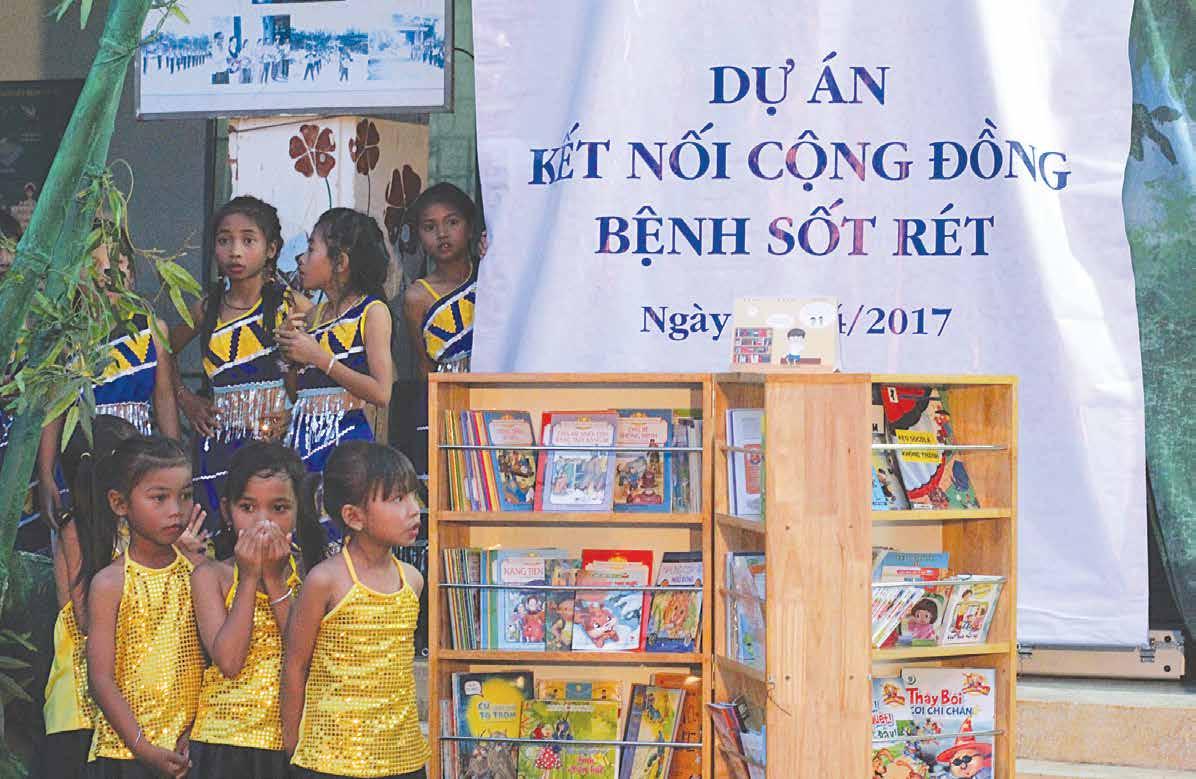
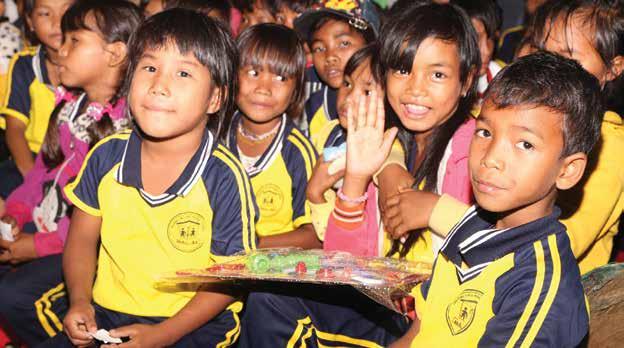
Project summary:
The OUCRU Malaria Group conducted a targeted chemo-elimination (TCE) trial to evaluate its potential to eradicate malaria in areas of suspected or proven Artemisinin resistance in Southeast Asia. The most challenging issue for this study was the community participation – the protocol demanded high levels of community enrolment and high levels of study retention. The study community in Ninh Thuan province were ethnic minority peoples, living in rural, poor and underserviced areas. Through this engagement project we aimed to enhance the community participation in our TME project by strengthening the mutual understanding and trust. Through a mobile library we created opportunities for children and teenagers to access books, media to improve their basic knowledge on malaria, as well as providing a chance to discuss research activities in an informal manner.
This mobile library also held a comic book named “The Little Enemies” about mosquitoes, and other science and health books for children. We also conducted dramas at two elementary schools in Ninh Thuan province reaching about 500 children and 300 adults. Posters and video clips about malaria transmission and prevention were shown, enabling community members to discuss malaria and the trial with the researchers. As well as benefiting the local community and enhancing the research, this project helped the study team gain a greater understanding of and empathy with their research communities.
Awarded: $5,000 (2015 - 2016)
Dr Ungke Antonjaya, Senior researcher, EOCRU Indonesia
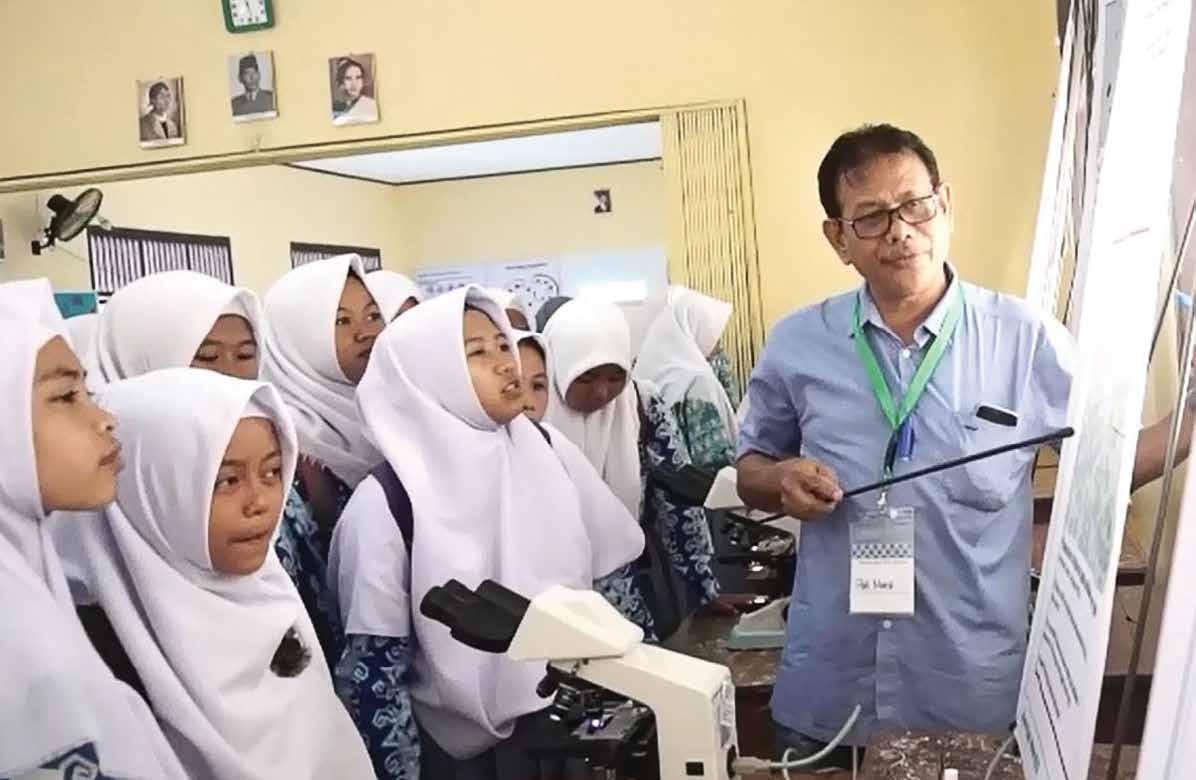
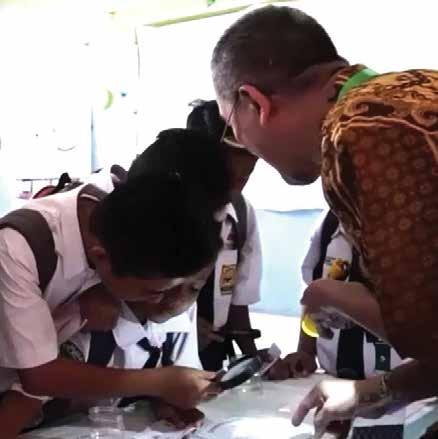
Project summary
The objective of this project was to engage with schoolchildren in a high malaria transmission zone in North Sumatra. Through fun activities the project team aimed to raise awareness about malaria parasites and community actions to reduce transmission. They expected that high school children would be effective at sharing knowledge with their families and wider community.
A ‘Malaria Expo’ was set up in a high school in the region of the EOCRU ‘IMPROV’ research study. Four activities gave school children the experience of identifying malaria parasites and Anopheles mosquito larva and adult using microscopy, watching an animation film of parasite lifecycles, recognizing malaria systems and visiting mosquito breeding sites. Over 580 children (12-18yo) and teachers took part in these activities.
The ‘Malaria Expo’ activities were repeated during the IMPROV study dissemination meeting with health practitioners, community leaders and policy makers from Lampung province. It was also adapted for use at a malaria photo exhibition in Jakarta, making the exhibition more participatory for visiting children. Pre and post-activity questionnaires showed that the children enjoyed the activities and improved their general knowledge about malaria transmission, but did not retain the detailed scientific information. Teachers and parents were appreciative of the activities.
Awarded: $4,885 (2015 - 2016)
Project summary
The OUCRU Dengue group is planning a number of community-based studies and needs to gauge the level of interest of community members to participate in such studies. The aim of this engagement project was to learn what the general public knows about dengue, its transmission in the community and about OUCRU’s research.
Dr Lauren Carrington, Research fellow Dengue, OUCRU HCM
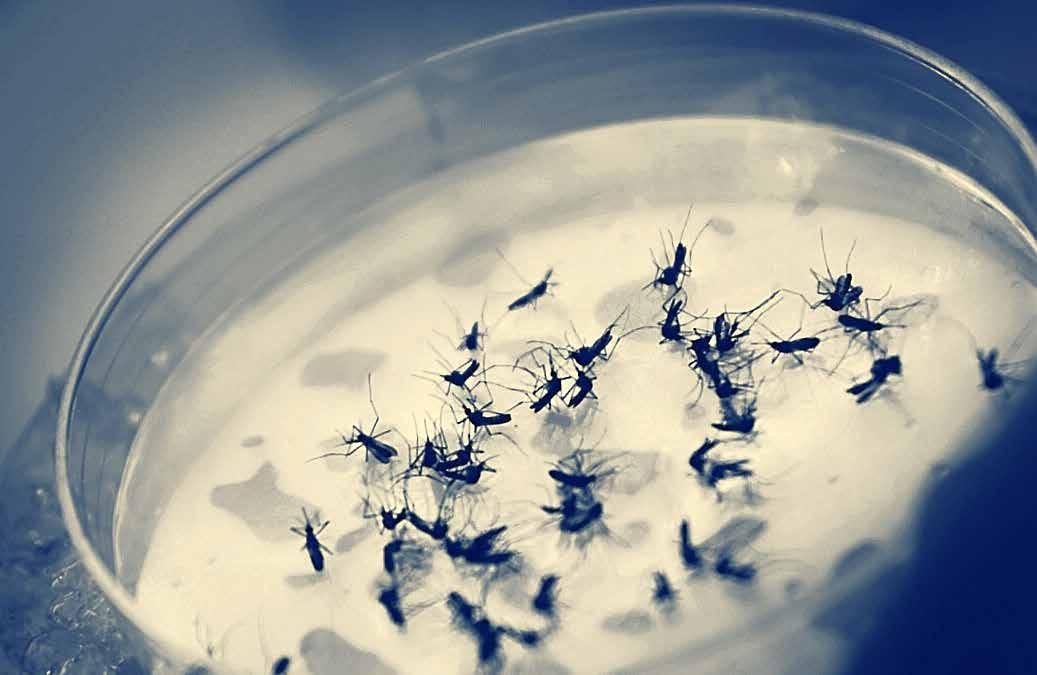

We collaborated with the Preventative Medicine Centre (PMC) in District 8, Ho Chi Minh City to interview 30 community members and conduct discussion groups with 2 groups of adults and 1 group of children. It helped us to learn what people knew about dengue research in HCMC, and to identify factors motivating or demotivating for people in their decisions to participate in local studies involving healthy community members. We also learnt about what the public knows of dengue and its transmission in the community, and their views on the most effective means of communication with the public.
Engaging with the community in this way was a challenging but rewarding experience. This project helped us to understand how difficult it is to conduct a study in the community. With challenges from the Hospital Tropical Disease ethics committee, we were not able to complete the project, but we did gain enough information, and build confidence from this experience to develop a community-based study named “Active surveillance of Zika virus and other arbovirus infections in Aedes mosquitoes and humans in HCMC”. This study (46DX) is currently running well, and we have worked well with PMC HCMC and a number of district level offices for this work.
Awarded: $5,000 (2015 - 2016)
Dr Nguyen


Project Summary
Livestock husbandry is an important component for agricultural development in Vietnam in general and in the Mekong Delta in particular. Therefore, zoonotic transmission may be more common in the community than as suggested by detection in hospitals. The objective of this project was to improve dialogue with farmers and local animal health authorities and to find effective means to communicate about zoonotic risks and appropriate antibiotic usage.
The project team set up dialogue events such as village meetings, training workshops and group discussions. Farmers and other key community members were encouraged to speak about their perceptions of zoonotic risk. Provincial animal health/agriculture policy makers and researchers were invited to train about antibiotic usage, current policy, biosafety and related health issues in animal production. These activities have helped to provide knowledge on zoonotic transmission risks and antibiotic usage, current policies and disease management in farming and improved understanding and trust among these stakeholders.
Awarded: $4,570 (2015 - 2020)
Vu Tuan Trung, PhD student, Dengue, OUCRU HCMC

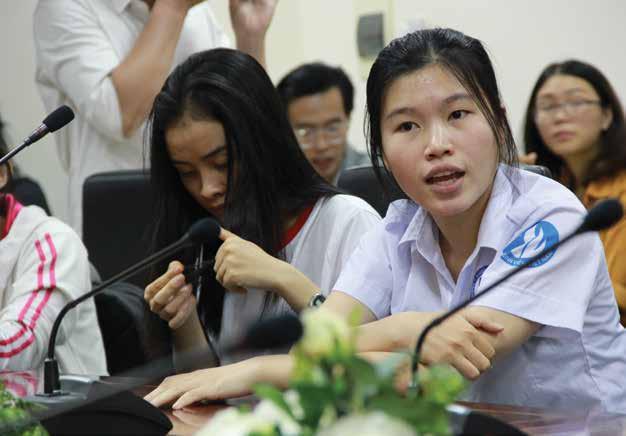
Project summary
Debate is not a common method of learning in Vietnam, nor a skill that is practiced in Vietnamese schools or higher education institutions. Therefore, the aim of this project was to introduce debates as an interactive, engaging way of learning for students. During this activity, the students were encouraged to carry out in depth research, present their own ideas clearly, and critique the opposing viewpoints of the challenging team. More importantly, students improved their critical thinking when they approached scientific statements.
Through this project, Mr Trung conducted 2 introductory sessions, 10 debate sessions involving 50 high school students and 7 OUCRU scientists, and an OUCRU lab tour with very exciting discussion with dedicated scientists to students. These events gave students the opportunities to think about science, do research about scientific topics and express their ideas confidently to their friends and scientists through the debate format. This project also allowed OUCRU Vietnamese scientists a platform to communicate their scientific ideas with non-scientists. In preparing information for the debate topics, the OUCRU researchers were motivated to explore their science in even greater depth.
An unexpected outcome of this small project is that it inspired the OUCRU PCE group to implement a much larger scale programme of science debates for high school students in Ho Chi Minh City. This has now become one of the regular activities of the school engagement programme involving 4 high schools, 4 universities and over 280 young people. One high school debate club, established by OUCRU, went on to win a national prize and participate in an international debate championship in Japan in 2018.
Awarded: $1,500 (2016 - 2017)
Nistha Shrestha, Pharmacist, OUCRU Nepal and Dr Abhilasha Karkey, Microbiologist and Vice - Director, OUCRU Nepal

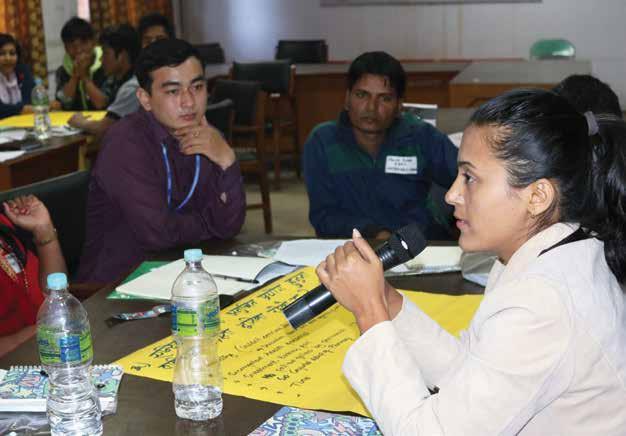
Project summary
Antimicrobial resistance (AMR) is a huge problem worldwide, but in Nepal poses a bigger threat due to rampant and unregulated prescribing and dispensing practices. In this project, we enabled enumerators to act as a gel between the pharmacist and researcher. The objective was to enable the pharmacists to be empowered to actively figure out their possible contributions to combat AMR, understand the contribution pharmacies make in the development of antimicrobial resistance, and understand the drive behind unethical dispensing choices.
We located and tracked all the pharmacies situated in the study area, carried out the questionnaire regarding the assessment of knowledge and attitude, conducted multi- stakeholder events such as ‘Tea Talks’, focus group discussions, and maintaining a log of experiences and observatory routines by enumerators.
The information gathered in this project helped us build a better backdrop on the contribution of pharmacies in AMR and its challenges. We will conduct a high-level follow up event exploring action plans and are looking forward to publishing the findings of our study in a peer-reviewed journal.
Awarded: $5,000 (2016 - 2017)
Dr Behzad Nadjm, Senior clinical researcher, OUCRU Hanoi and Nguyen Thi Thanh Ha, Clinical Trial Unit coordinator, OUCRU Ha Noi

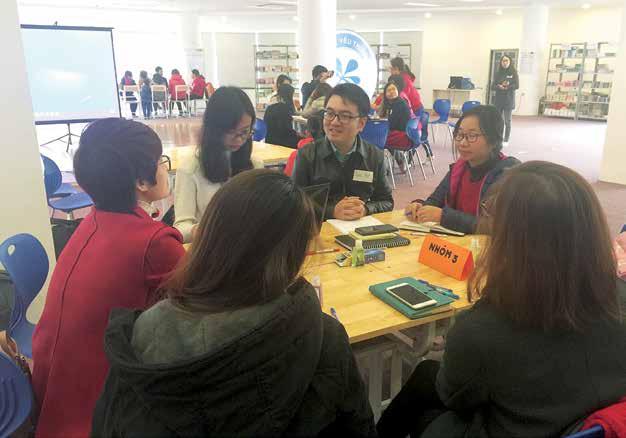
Project summary
The project team implemented a participatory workshop “Patient safety, hospital acquired infection and antibiotic resistance in the hospital” in Ban Mai secondary school, Hanoi. There was the participation of more than 30 parents of young children to discuss the issues concerned and their opinion related to patient safety, hospital acquired infection and antibiotic resistance. At the event, leaflets concerning patient safety, and antibiotic use were provided for parents. We had an open discussion with parents to understand their views and share with them about antibiotic use and resistance, patient safety, and hospital acquired infections. We also showed a video related to patient safety in the hospital, played games, and practiced hand hygiene by using hand rub products.
Data from the group discussion was used to inform an in-depth interview guide. We interviewed eight parents to get deep understanding about their opinions concerning patient safety, hospital acquired infection and antibiotic use and resistance. We have summarized these interviews and have developed a short animation based on the community feedback to pass on patients and their relative’s worries about hospital care to medical students.
Awarded: $5,000 (2016 - 2020)
Link: https://www.youtube.com/watch?v=7jXX_gttg80&t=7s
Dr Pham Nguyen Kieu Oanh, Vice – Head Viet Anh Ward, Hospital for Tropical Diseases and Nguyen Quoc Giang, PCE coordinator, OUCRU HCM


Project summary
Admission to an intensive care unit (ICU) is a stressful event for patients, staff and family members. Better understanding of stress faced by families of critically ill patients is therefore important to improve relationships and trust between medical staff and families. The objective of this project was to evaluate the level of stress of relatives of critically ill patients in the Viet Anh Ward and Adult ICU at the Hospital for Tropical Diseases in Ho Chi Minh City. Then, applying the appropriate methods to reduce stress levels and improve coping of relatives through community engagement activities, and disseminate scientific knowledge about communicable diseases and care of patients with residual neurological disability through participatory activity with family members.
The project team completed four focus group discussions and interviewed 23 individuals including carers and health workers to understand the difficulties they face with patients in ICU. Based on these findings, the team held two health talks on ‘tetanus disease’ and ‘how to reduce stress’ in an open area in the hospital. Carers were invited to participate, with opportunities to ask questions of the speaker and doctors. Art therapy methods have been used in participatory workshops with 2 groups of relatives (17 members) to help the relatives discuss their concerns, support each other and increase positive thinking.
Awarded: $4,981 (2016 - 2020)
“Talking meningitis”: improving awareness of central nervous system infections in Jakarta
Mugi Nursatya, Study coordinator, EOCRU Indonesia
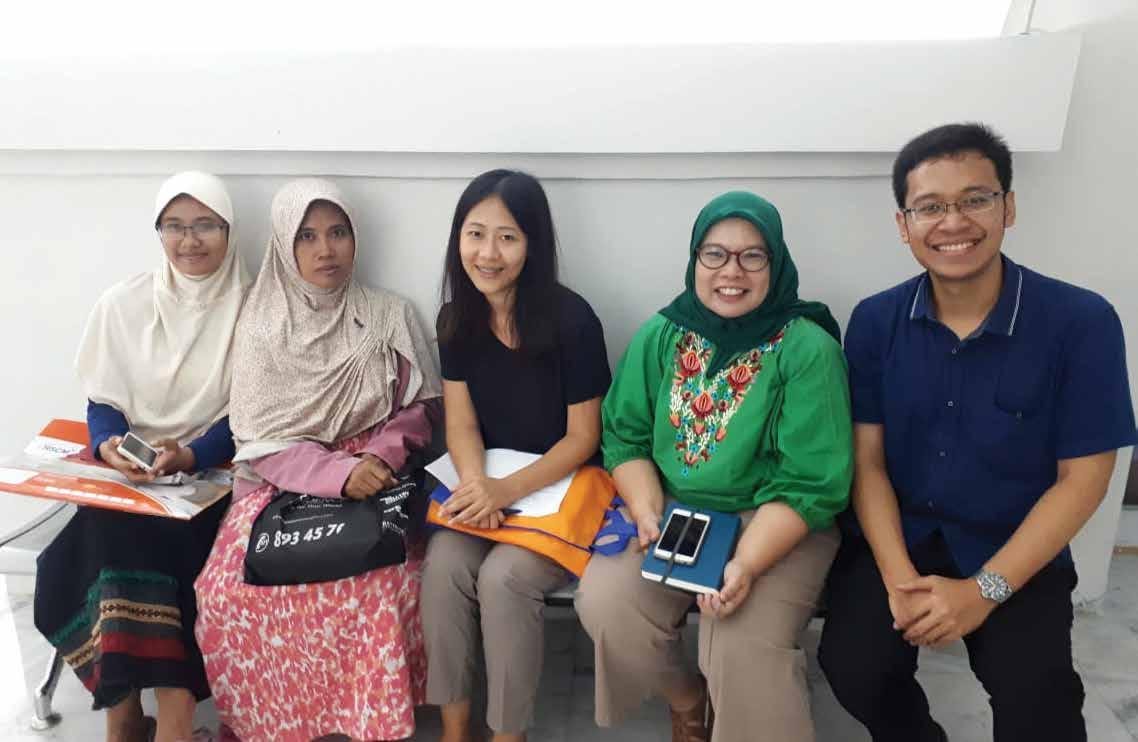
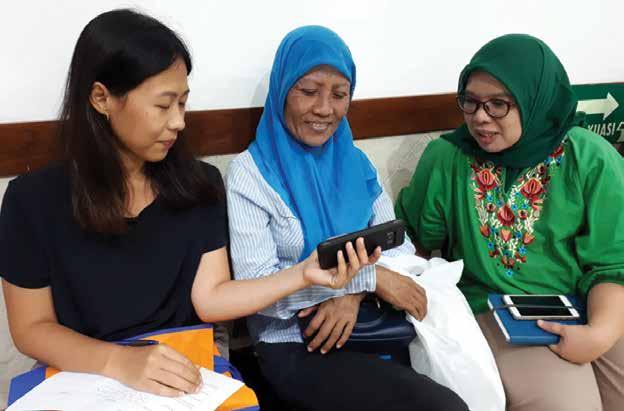
Project summary:
Indonesia faces a substantial burden of meningitis with significant mortality and neurological sequelae. Meningitis poses a major clinical challenge to health care workers (HCWs), as diagnosis is difficult and outcomes are often poor. Despite the fact that many thousands die each year from meningitis, this severe disease is not generally recognized as a public health priority. This project aims to understand the experiences and perceived barriers of meningitis patients and carers in terms of illness perception, health seeking behavior, access to health, clinical management and sequelae. Then developing engagement activities for the general public, guided by the experiences of patients/carers, to improve knowledge and awareness of meningitis and ongoing research, and improve access and linkage to care.
We conducted a sharing session about TB meningitis with TBM patients and family members. 33 participants, who are members of the Pelita Ilmu foundation (an NGO which works with people with HIV), including HIV patients and social workers, joined this workshop. The main topics we discussed were the experiences of patients with TB meningitis, and how families support people living with TBM and HIV. The participants actively asked questions and shared their thoughts and experience during the session. They reported that they would like to have more workshops like this in the future. We have also produced a short film about TBM focusing on the symptoms and treatment, with a plan to spread the video on social media and YouTube in order to raise awareness of symptoms and promote early presentation to health facilities.
Awarded: $3,355 (2016 - 2020)
Video: https://www.youtube.com/watch?v=Lg6vXZJBhZ8
Dinesh Deokota, Director of Media for Development, Prof Buddha Basnyat, Director OUCRU Nepal and Dr Mary Chambers, Head PCE OUCRU

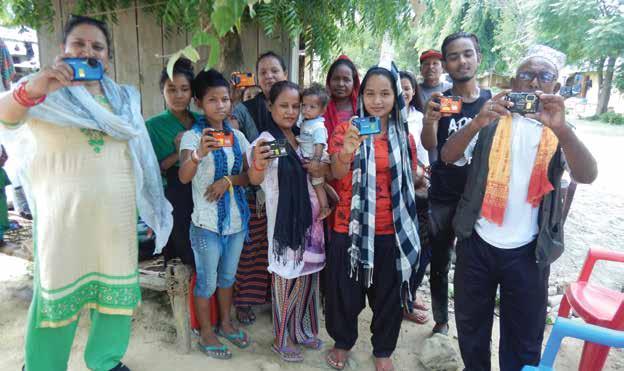
Project summary
Kapilvastu and adjoining districts in the Tarai region of southern Nepal, have one of the highest reported snakebite incidences in Nepal, with women and children being most likely to be bitten and subsequently, most likely to die. The estimated national average is 40,000 people bitten by snakes every year and ‘over 1000’ die as a result. In our project area in Kapilvastu, one snakebite treatment center alone reported 486 cases of snakebites and 21 snakebite related deaths in the first 4.5 months of 2019. The figures however are not an accurate representation of the problem as most snakebite victims do not visit medical facilities, which keep records. They go to traditional healers instead, and some die before reaching any help. Thus, a large proportion of snakebite cases and snakebite deaths in Nepal remain undocumented.
Using a mix of formative research techniques - interviews with village members and key stakeholders, and participatory photography we explored the situation about snakebites in these communities. A group of 20 people participated in taking photographs and 18 people helped plan the film. We heard where villages feel the greatest risks of snakes and snakebites occur, and their stories of how bites are managed in their communities. In collaboration with community members and local health providers, we created an awareness raising film and posters and banners highlighting risks and how to manage them. We used these materials to tour surrounding villages, showing the film in schools and public places. We were able to reach a wider audience of over 800 people. Another measure of success for this pilot project was the people’s appreciation and enthusiasm and their wish that such an engagement process should reach each person living with fear of snakebite. We are hoping to scale up this project in the future.
Awarded: $5,000 (2017 - 2020)
Video: https://www.youtube.com/watch?v=OFhehynzAkg
Prof Jeremy Day, Head of CNS,
Tran Thi Hieu Thao, PCE coordinator and OUCRU Green Team
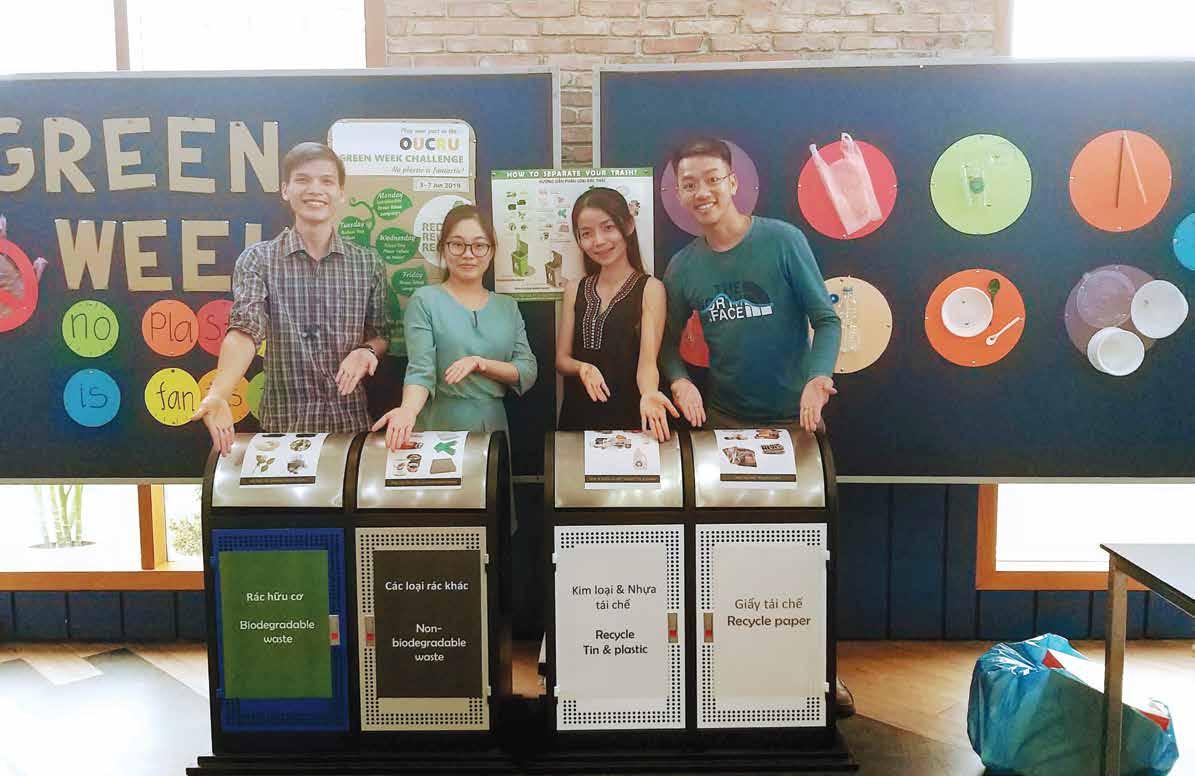
Project Summary
There is a growing body of evidence that plastic pollutions are creating irremediable damage to our ocean ecosystems. This damage is also extending onto land, and impacting human health as tiny micro particles of plastic end up in sea salt and 80% of sea fish (Clukey et al 2018; Karami et al 2017).

Vietnam is one of the key sources of plastics that end up in the ocean (Lahens et al 2018; Schmidt et al 2017). The objectives of this project were to empower a group of OUCRU researchers from different departments by involving them in a project for change to raise awareness about the impact of waste at OUCRU and to work with a local artist to design effective media that encourages people to reduce their use of single use plastics.
A group of OUCRU researchers and artist Nguyen Minh Nam, came together to form the ‘OUCRU Green Team’. The team has mapped OUCRU monthly waste burden, electricity and water usage. Using this information the team created posters showing how much waste OUCRU creates and an action plan. The team has encouraged OUCRU to buy reusable plastic cups and plates for events and successfully petitioned the OUCRU Management to use catering firms who have a no plastic policy. In May 2019, we held a ‘Green Week Campaign’ with daily fun activities in OUCRU public areas, displays and posters and motivational talks. Over 100 people attended events, many signing ‘green pledges’ to try to reduce waste. Recycling bins have been set up in the public areas. Stalls selling environmentally friendly products were set up during the week. The entertainment committee agreed to provide reusable water bottles rather than disposable water at the 2-day annual OUCRU team building.
In the next phase we will continue to send reminders to OUCRU staff, and start work with Hospital for Tropical Diseases and patients to improve recycling and reduce use of plastics in the hospital grounds.
This project was given an extension due to Covid-19 related delays and is still ongoing.
Awarded: $5,000 (2017 - )
Thuy
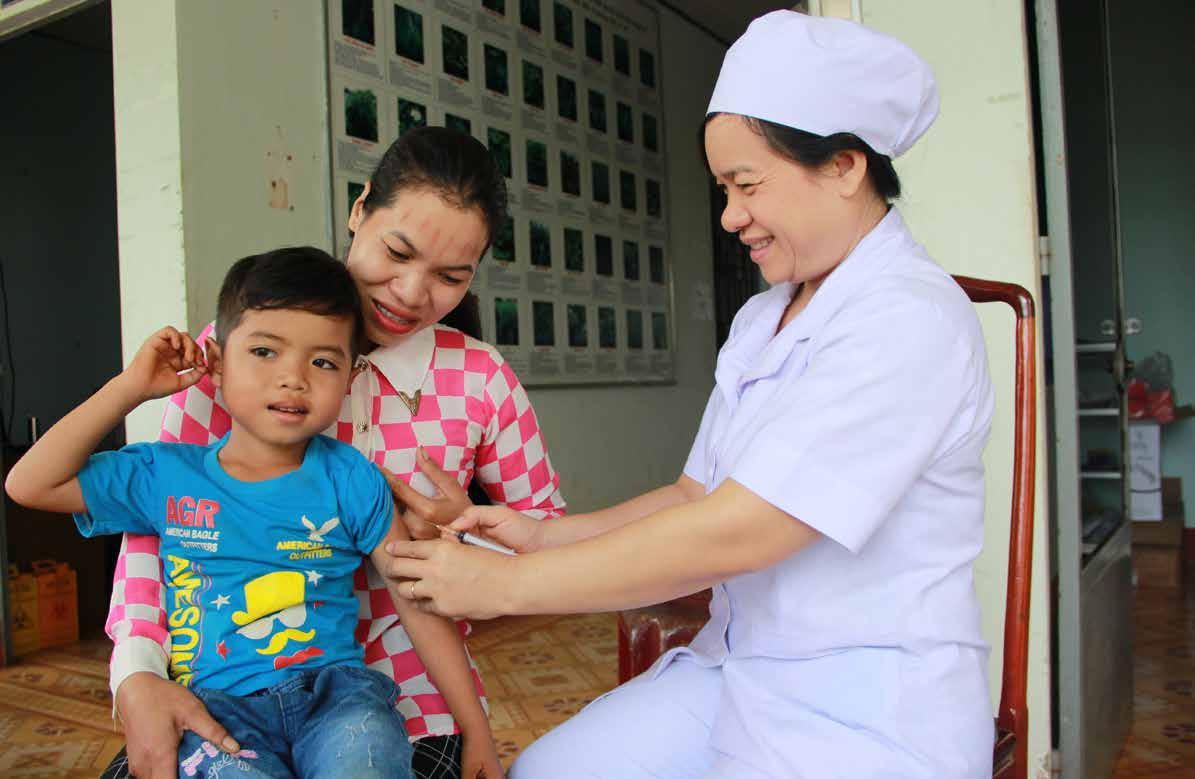

Our recent work at OUCRU indicates that ethnic minority rural communities are those with lowest vaccination coverage and that there are specific cultural and ethical issues surrounding acceptance and uptake of vaccinations, in addition to the practical difficulties in implementing an immunization program in remote communities. Through this project, we worked alongside local health providers and the commune health care workers to design and trial different community engagement activities to raise awareness of the role and importance of vaccination in remote communities.
Results from previous qualitative research (05EP study) in these communities helped us design the engagement activities. These included training workshops for local healthcare workers (HCWs) about communication skills and knowledge of the Expanded Program on Immunization programme. These HCWs play an important role in influencing people’s knowledge and acceptance. We designed posters promoting vaccinations using pictures (taken locally) and few words to make them attractive and effective for local people, as literacy levels are low in these communes. The posters were put up in places that people usually frequent such as pharmacies, private clinics, grocery stores and gas stations, etc. Finally, we have written a drama based on interviews with community members, which will be performed in local communes, attracting children and their parents. We hope that these novel techniques will help increase the understanding about the importance of vaccinations.
The lessons we have learnt from this project are that local health workers and midwives are very important in influencing people in rural and ethnic minority communities. In most cases, there is a high level of trust in these workers, although there is evidence that HCWs with the same ethnicity are better received. Therefore, it is important to build capacity of locally based HCWs to communicate with people in these communities.
Awarded: $10,000 (2017 - 2019)
Video: https://www.youtube.com/watch?v=e4sP_HFpcBA
The practice and ethics of participatory visual methods for engagement in biomedical and public health research: An online handbook and accompanying e-learning module
Dr Mary Chambers, Head of PCE OUCRU and Dr Gill Black, Co-director Sustainable Livelihoods Foundation South Africa
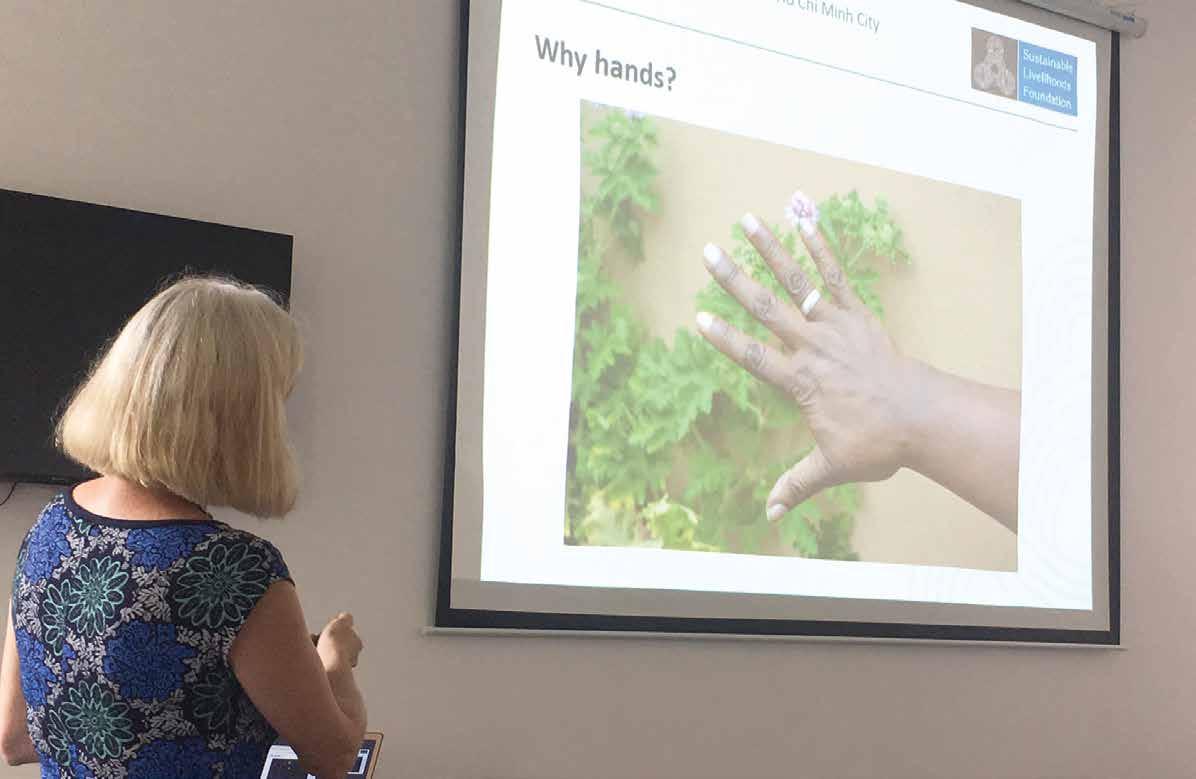
Project Summary
There are currently no open access practical guidelines that consider the ethical implications of using Participatory Visual Methods (PVM) for community engagement in health and biomedical research in lowermiddle and middle-income countries. The proposed online handbook will make an important contribution towards filling this specialized resource gap.

The project was co-founded by Wellcome, and supported by The Global Health Network and the OUCRU Seed Awards. Through the project the authors developed an online handbook - The Practice and Ethics of Participatory Visual Methods for Community Engagement in Public Health and Health Science. The book aims to provide practical and ethical guidelines for practitioners working with participatory visual methods (PVM) to engage researchers, research participants and wider communities in biomedical and public health research.
Secondly, they created an e-learning course that provides guidelines on the practice and ethics of participatory visual methods (PVM) with emphasis on their use in low and middle-income countries for community and public engagement in health and health science. It was produced as part of the Mesh Community Engagement Network learning and training resources (www.mesh.tghn.org). The course has been developed for use by engagement practitioners who are relatively new to the field of PVM and want to learn more about what they are and how to work with them. It is most fitting for those who already have some experience in facilitating participatory processes or in using qualitative research methods. The course also aims to support health science researchers who wish to include visual methods when engaging local communities and wider publics in their work.
Reach: As of September 2021 the online course had over 9000 visits and 1871 certificates of completion issued.
This Seed Award has enabled the two authors to travel to meet and work together on this project, and to cover costs for graphic design of the handbook.
Awarded: $2,350 (2017 - 2020)
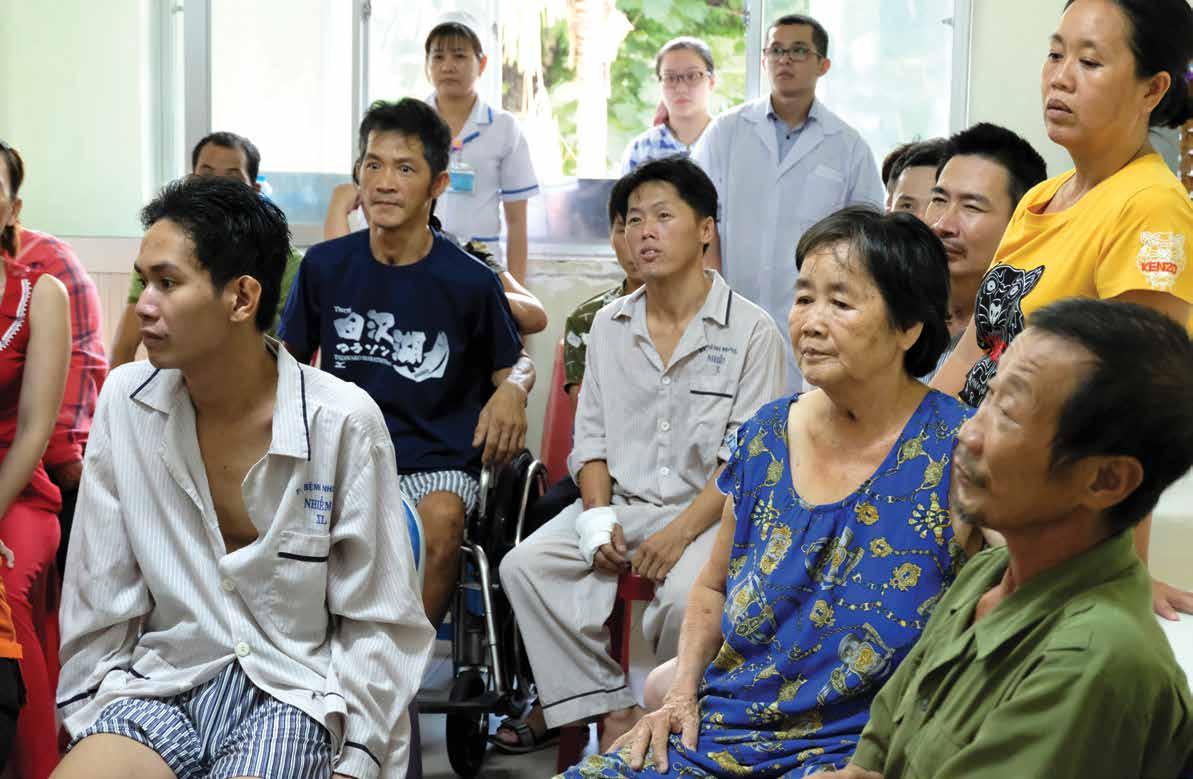
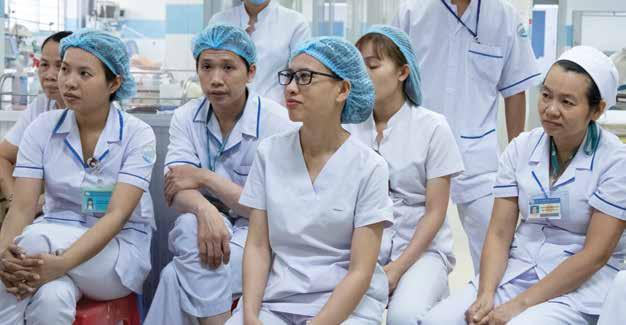
Patients with tetanus form the largest group of critically ill patients at the Hospital for Tropical Diseases (HTD), staying an average 3 weeks in the intensive care unit and often several months in hospital. They suffer from muscle loss, weakness and long-term disability related to this. Currently there are no rehabilitation facilities for these patients at HTD and high income country models of care are expensive and unfeasible in such a setting. The principal aim of this project is to engage with non-academic stakeholders to design and implement a healthcare worker – carer partnership to deliver a rehabilitation program for patients with tetanus, evaluating the feasibility, sustainability and acceptability of this approach.
We have completed participatory design of a rehabilitation program for patients with tetanus. This involved a multidisciplinary team of experts in rehabilitation and tetanus for the initial design. Printed material and a video of the exercises were designed and produced, using feedback from patients, carers and healthcare workers. These were used to support the feasibility study in which 30 patients were enrolled. Patients underwent the planned rehabilitation programme. This involved healthcare workers, the study team and carers. The number of exercises performed were recorded. Interviews with patients, carers and healthcare workers allowed for more in-depth understanding of barriers and benefits of this program.
This engagement project was presented as part of a wider ICU rehabilitation project at the Australia and New Zealand Intensive Care Meeting in Singapore in April 2019. Dr Kim Anh AICU won best poster prize for her report of this work, and this approach received a lot of interest from other medics at the conference. A poster presentation and oral presentation of the project were also given at the Asia Pacific Early Mobilization in ICU conference in Malaysia in August 2019. We have evaluated the acceptability with short interviews. Staff and patients are very supportive and enthusiastic about the program. Patients feel there are many benefits to the printed material and videos.
This project was given an extension due to Covid-19 related delays and is still ongoing.
Awarded: $9,925 (2017 - )
Convened by: Dr Mary Chambers, Head of PCE OUCRU
and Prof Phaik Yeong Cheah, Head of Ethics and Engagement MORU

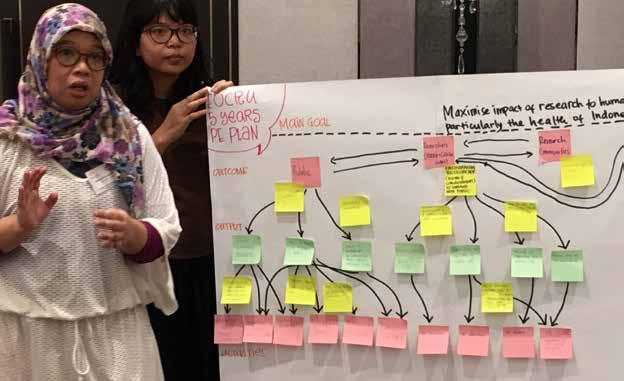
Project summary
A regional workshop was convened in January 2019 for Seed Awardees from both OUCRU and MORU. 55 participants from 8 countries attended: Thailand, Laos, Cambodia, Myanmar, Nepal, Indonesia, Vietnam and the UK. This workshop aimed to bring researchers and engagement practitioners together to share successes and challenges of conducting PCE, and to share ideas and approaches. The workshop combined presentations from the Seed Awardees with facilitated exercises and discussions about evaluating PCE, writing academic papers on PCE and a 1.5 day training on developing a Theory of Change model. Each group came away from the workshop with a workable TOC for their projects. Representatives from the Wellcome Trust and University of Oxford shared the new Wellcome PE strategy and Oxford’s approach to PCE.
This funding supported 10 OUCRU researchers, some who have received Public Engagement (PE) Seed Awards. The end of workshop feedback was very positive and most participants stated that it had raised awareness of the many ways of doing public engagement in different contexts. They also reported that they were more motivated to continue integrating PCE in their research studies.
Awarded: $5,695 (2018 - 2019)
Dr. Leigh Jones, Head of Training and Ms. Le Thi Kim Yen, Training Coordinator, OUCRU HCM
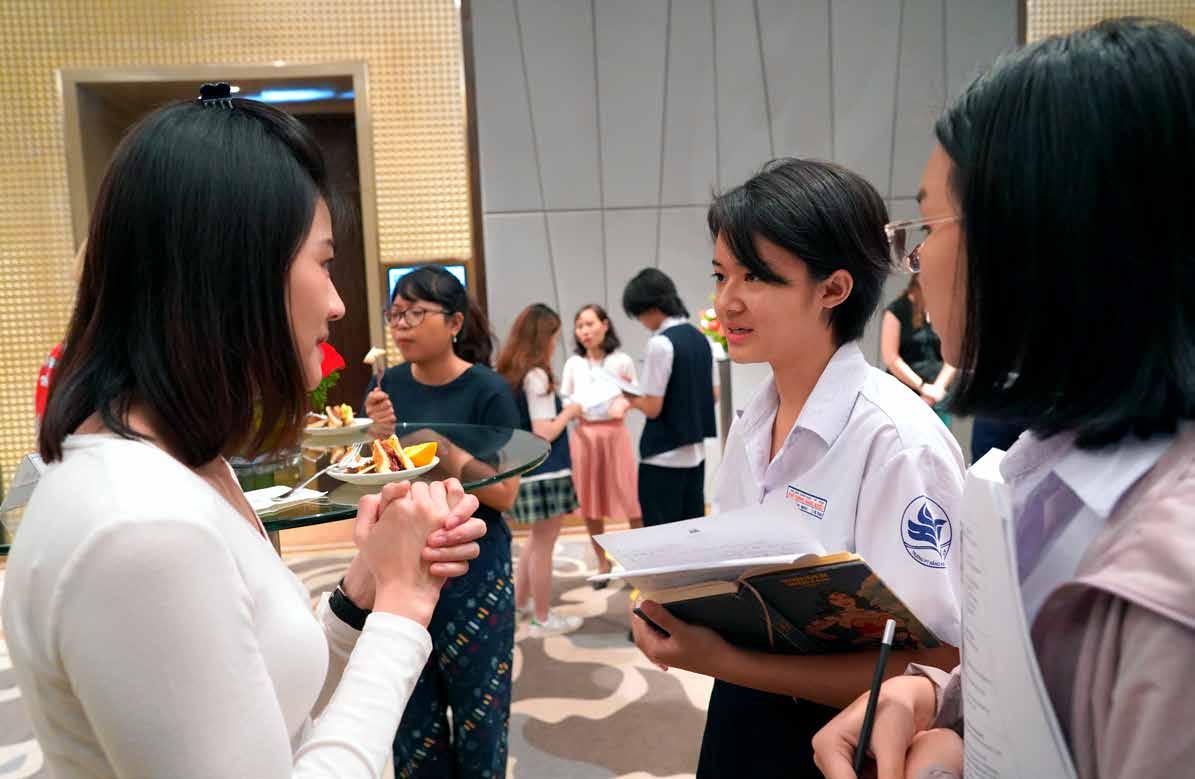
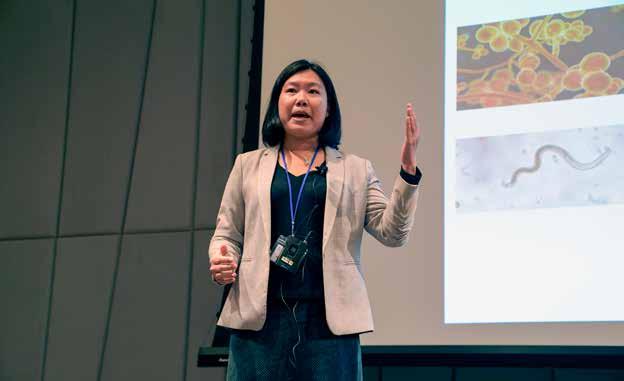
Project Summary
MORU/OUCRU Three Minute Thesis competition took place on Friday December 13th 2019 at the Caravelle Hotel in Ho Chi Minh City, to celebrate the exciting research conducted by Doctor of Philosophy (PhD) students.
Ten PhD students from OUCRU and MORU competed to effectively explain their research in three minutes, in a language appropriate to our invited audience of high school pupils from VNU-High School for the Gifted, and APU International School. A panel comprising academic staff members from OUCRU and MORU, and teachers from both schools judged the talks and awarded the top two speakers – Dr Marieka Bierhoff (SMRU, Thailand) and Dr Angela McBride (OUCRU, Vietnam) with travel prizes to attend international conferences. Invited pupils voted Dr Marieke Bierhoff for the “People’s Choice Award” as their favorite speaker. Pupils also took part in a vibrant “Science Speed Dating” activity where they asked the PhD students about their project work and career path so far.
This networking activity allowed PhD students to talk about their research with young, future scientists, to encourage the pursuit of a career in science and to foster a greater interest in science among young people. PhD students felt that the training received and chance to present in such a professional setting improved their presentation abilities. The PhD students greatly enjoyed interacting with the high school pupils at the “Speed Dating” activity and were greatly surprised by the many insightful questions and many of which they struggled to answer!
Awarded: $5,640 (2019 - 2020)
Link:
https://www.youtube.com/watch?v=HfH0KImf8QE&feature=emb_logo
Dr. Jennifer Ilo Van Nuil, Researcher in global health ethics and Ms. My Nguyen Le Thao, social researcher assistant, OUCRU HCM


Project Summary
OUCRU is currently conducting two clinical trials (33CN, 35CN) that will examine shortened treatment durations for HCV with direct acting antiviral (DAA) medication. As part of 33CN, we are conducting an ethnographic study on the care and treatment experiences for those who are enrolled in the clinical trial. These participants represent only a very small and likely very different subset of the total population who need screening, care and treatment.
Researchers have identified several “at-risk” groups for HCV including: people who inject drugs (PWID), prisoners, specific birth cohorts, and those potentially exposed through unsafe health care practices (Cooke 2019). In Vietnam, there are 227,000 registered PWID in Vietnam and an estimated 88.5% of PWID in Vietnam are living with HCV (PSI 2018). There is limited HCV treatment for those co-infected with HIV and a lack of access to care within the methadone clinics (Perlman 2018). We will identify other potentially underserved populations (e.g. commercial sex workers) during stakeholder mapping (see methods).
The goal of this project is to begin a dialogue within the communities of underserved populations at risk for HCV in and around HCMC and pilot PAR (Participatory Action Research) methods with one of these communities. The specific aims of the project are to identify the range of NGOs and other institutions that are working with underserved populations at risk for HCV in HCMC and describe the interventions and programmes on which they are currently working and to pilot the use of PAR methods to start dialogues with a subset of the communities identified in the first objective.
To date, two advisory groups have been formed and have completed a stakeholder mapping exercise. Three community-based action research groups started, including a group for people who inject drugs (PWID), a group for LGBTQ at risk of HepC and a group at risk through financial poverty. They have each conducted a cycle of action research, including how to support methadone users during COVID-19 lockdown restrictions.
This project was given an extension due to Covid-19 related delays and is still ongoing.
Awarded: $9,804 (2019-)
Ms. Nguyen Thi Hong Yen, Social Researcher, OUCRU HCM


Project Summary
The project was an extension of the study 03SR in exploring the practices and perceptions of informed consent in clinical trials. In the PE component, we aimed to improve the quality of informed consent during recruitment in clinical trials by introducing different interventions to healthcare workers and patients.
Findings from 03SR suggested that informed consent is a complex issue that cannot be solved from the root within the scope of this project. Therefore, in the project, we organized several meetings with different stakeholders including Public Engagement (PE), a clinical trial team, Clinical Trials Unit (CTU) to discuss the most possible way to tackle the problem. After several discussions, we decided to have new versions of informed consent forms (ICF) and a support document which provides needed information about a certain disease and a clinical trial. The document is an attachment of the ICF delivered to research participants after the informed consent session. Those documents were tested with a small group of research participants and received good feedback. A recommendation for improving the quality of the informed consent process was prepared and sent to CTU as a reference for their future use.
Awarded: $6,285 (2019-2020)
Dang Trong Thuan, Senior Research Coordinator, OUCRU HCM
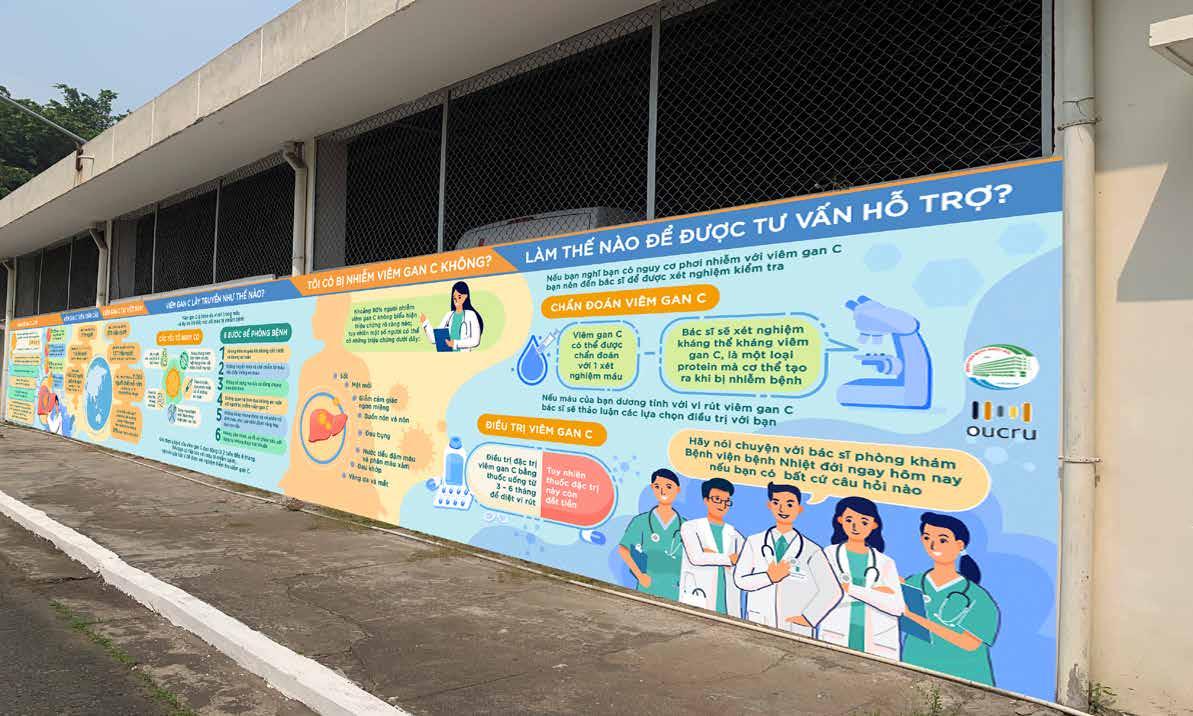

Project Summary
In Vietnam, an estimated 1.07 million people are infected with HCV. Most remain undiagnosed. For those aware of the diagnosis, highly effective Direct Acting Antiviral (DAA) treatment is available, but access to treatment remains limited due to prohibitive costs. The Hospital for Tropical Diseases (HTD), Ho Chi Minh City manages over 15,000 patients with HCV, many of whom cannot afford treatment.
SEARCH (South East Asian Research Collaborative in Viral Hepatitis) was conceived by OUCRU and the HTD in 2017, with an aim of researching strategies to reduce costs and improve access to HCV treatment. Several studies are planned for the coming years, including a multi-arm randomized controlled clinical trial (RCT) involving over 1000 patients, comparing different treatment strategies. WHO-approved DAA drugs will be provided free-ofcost, with >95% estimated chance of cure for those participating.
The work proposed for this Seed Award is centered on improving community knowledge of HCV, increasing testing, and enhancing recruitment to clinical trials. We plan to use a multi-media approach, targeting the captive audience of the HTD clinics with educational videos, radio adverts, and specially commissioned murals. We also aim to expand the existing Community Advisory Board and engage with local health practitioners to advertise the trial.
This project was given an extension due to Covid-19 related delays and is still ongoing.
Awarded: $6,000 (2019- )
Link: https://youtu.be/XtQmfo6O2EU
TB Photovoices - What we want all of us to know
Dr. Panji Fortuna Hadisoemarto, Senior Researcher, EOUCRU
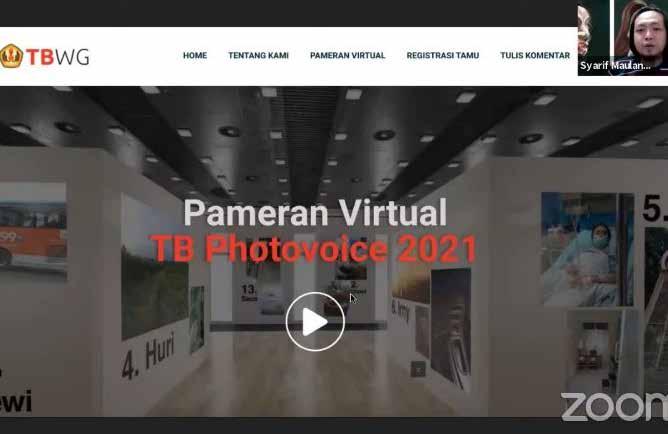
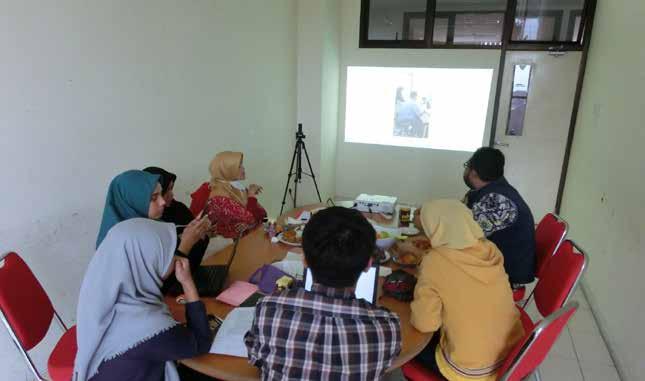
More than 7500 residents of Bandung, a city of 2.6 million people, were identified as having tuberculosis in 2018. Our previous research demonstrated that at least half of the people with pulmonary tuberculosis did not seek care from qualified healthcare providers until after being sick for four weeks and treatment was not started until three weeks later.
Photovoice is a participatory research approach in which participants use a camera to take pictures and provide meaning to the pictures through a facilitated discussion. This project aims to use photovoice to raise public awareness about the community and health system barriers to timely diagnosis and treatment for tuberculosis, as well as barriers to treatment completion.
In this project, 15 former TB patients (7 had drug-resistant, 6 had drugsensitive pulmonary, and 2 had extrapulmonary TB) and 5 healthcare workers participated. The data collection was conducted from November 2019 to January 2020. Out of 362 submitted photos, 87 photos were discussed in 6 biweekly meetings each for every groups, contextualized, and captioned.
Discussion processes were recorded, transcribed, and analyzed using standard thematic analysis. Themes emerged from photo discussions were barriers and problems related to treatment, including social, demographic, economic, and psychological aspects of TB treatment, and TB-related health services, as well as facilitators to treatment success such as treatment supporting systems, positive activities, and post-recovery experiences. 81 photos and captions were published on Instagram and Facebook from November 2019 to January 2021 and shown in a public exhibition. Due to the COVID-19 pandemic, the public exhibition was carried out virtually starting from March 24th, 2021, coinciding with the World TB Day. In addition, in January 2021, we also held a talk show entitled “The Role of Advocacy in Tuberculosis Control: Experience from Photovoice Project.”
Awarded: $9,236 (2019 -2020)
Link: https://tbphotovoice.com/
Ashata Dahal, PE Officer, OUCRU Nepal
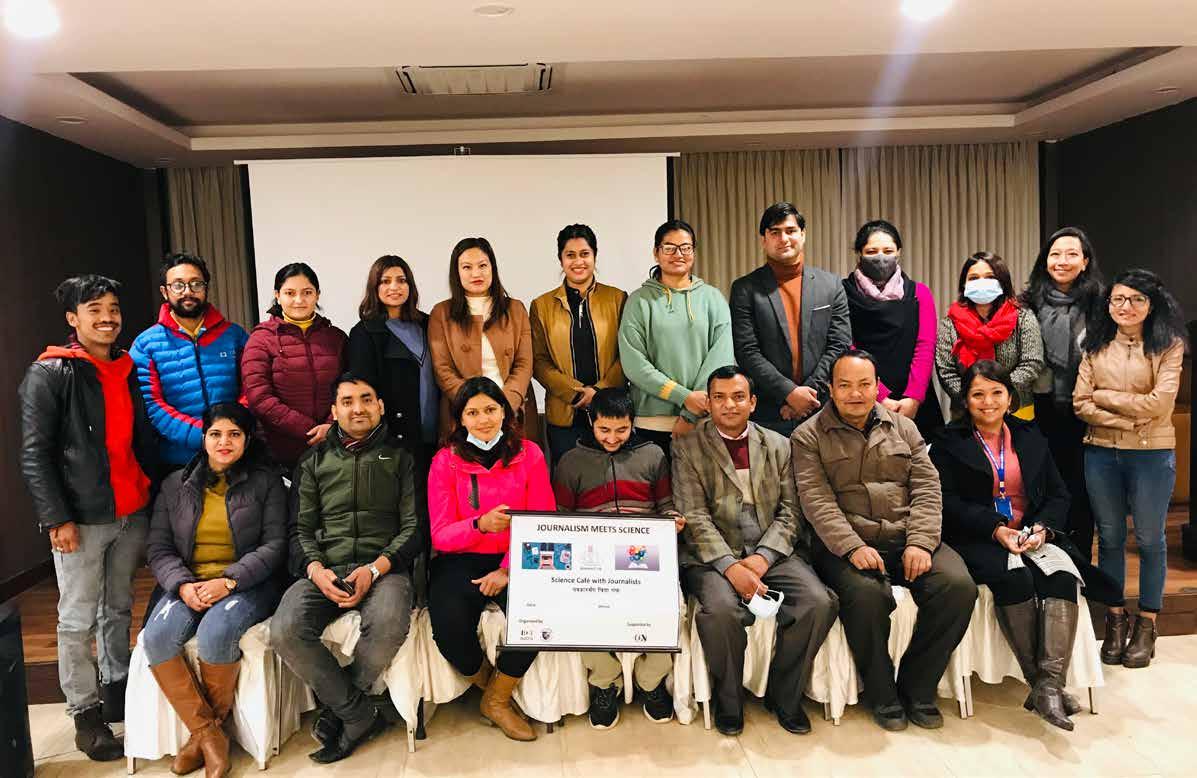

Project Summary
“Journalism meets Science” is science café that is conducted with the fourth estate” i.e. the journalists working in print and news media. The main aim to conduct this event is to engage the journalists working in the reporting of science and health research and connect them with the professionals/ experts working in these fields in a more relaxed and informal environment. The event also allows interaction between the journalists and experts about their respective experience. For this purpose, we will either contact the Nepal Health Journalist Group for the names of journalists reporting on science and health research, or contact them via social media and personal connections for their participation. An expert is called out for each session to carry out the engagement. Topics like research ethics, types of study designs, phases of development of vaccine, clinical research etc. will be discussed during the science café. At the end of each session, we will also distribute flyers for the participants with key messages of the discussed topics. The experts for the session will be academics and scientists working at OUCRU-NP or Patan Academy of Health Sciences (PAHS), the host organization of OUCRU-NP.
With these engagement sessions of “Journalism meets Science”, we are expecting that the journalists will be able to realize the importance of facts based science communication.
The 1st science café with journalists was conducted on 18th January 2021 with the participation of 16 reporters from print media, online news portals, television and radio, and was facilitated by Dr. Abhilasha Karkey & Dr. Suchita Shrestha from OUCRU-NP along with Ashata Dahal. However, the next science cafe was postponed due to the Covid-19 pandemic.
This project was given an extension due to Covid-19 related delays and is still ongoing.
Awarded: $ 5732 2020-)
Livia Nathania Kurniawan, PE Offficer, EOUCRU
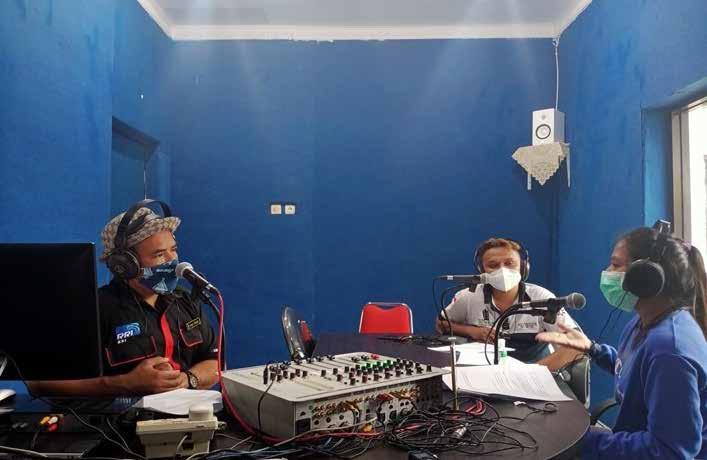
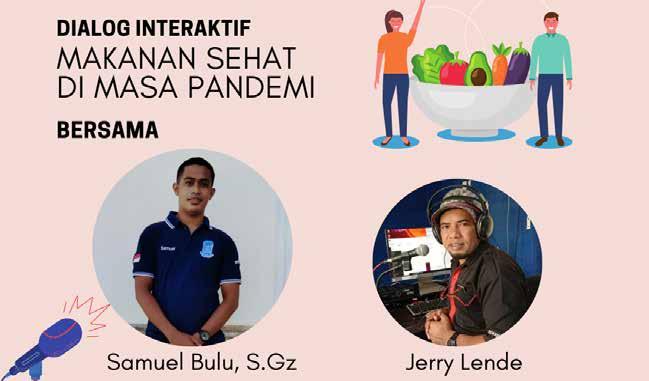
The contents of the podcast and radio programs will cover necessary information about health to encourage positive public health behaviours from experts including doctors and researchers, an up-close perspective from community actors to increase awareness about the health gaps in big cities versus remote areas, as well as insights about the medical, clinical, or research fields to inspire the youth to pursue a career for the good of the development of these significant health-related industries in Indonesia, specifically regarding Covid-19 in this pandemic era. All are conducted in Indonesian language and in a conversational style in order to be relevant to our target audience.
This podcast project was conducted in 2 sites: Jakarta-based for nationalwide podcast, and Sumba-based for Sumba localized radio program. The nation-wide podcast was distributed to Spotify via Anchor, a hosting platform. Meanwhile, the Sumba radio program was aired on a local radio station, namely RRI Sumba. There were 8 episodes each on Spotify and radio, making it 16 episodes in total.
The challenge in this project was to find and match the schedule of the speakers for the recording and airing sessions, especially knowing that everyone in the health industry is busy during the Covid-19 pandemic. For the radio program, if we could not find any speakers to air live, we decided to air the podcast recording on the RRI Sumba radio, for topics that are still relevant not only in big cities, but also in urban areas like Sumba. Despite the challenge, we managed to always find one or more speakers for each episode, thanks to the networks of EOCRU as well as the network of external speakers. This is also good for the expansion of the PCE network.
Awarded: $ 6150 (2020 -2021)
Links: Podcast series
EOCRU Facebook page
“What my COVID-19 tests results say?” A practical guide for Indonesian communities
Ralalicia Limato, PhD student, EOUCRU

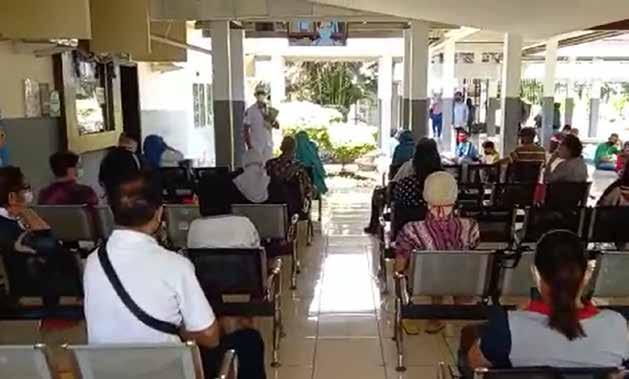
This project aims to provide the Indonesian communities with reliable, accessible, and shareable information that are easy to understand about COVID-19 tests, and we made an educational video using a short-animated video (8 minutes) with simple Indonesian language. We also included three local dialects that were most used and easy to be understood by Indonesian communities. Two main objectives of this project were to produce a short information animated video using Bahasa Indonesia explaining the different types of COVID-19 tests, and to share a short information video about the different types of COVID-19 tests using social media platforms.
The outputs of this project included a short-animated video, the number of video postings and views, and the results of a community survey. The video was shared on 24 February 2021 in four social media platforms, including YouTube, Instagram (IGTV – Instagram TV), Facebook, and Twitter. Within a month (by 31 March 2021), there were a total of 16 postings and re-postings of the video in all foursocial media platforms which had a total of 36,180 views. IGTV was the most favoured social media platform as it had 97.5% of total views and 68.7% of total video postings. There was a total of 287 people who participated in the community knowledge survey. The mean score was 2.85 of 3 which showed that the majority of people were able to distinguish different types of COVID-19 tests. The majority of responses were positive, and these were documented from the comment section in the respective platforms. The video is also aired in a tertiary hospital outpatient waiting space where one collaborator is working.
The most important lesson learnt about this project is that besides collaboration with the health experts, it is important to collaborate, share thoughts, and brainstorm ideas with people from the media – social media and television – to create informative, engaging, fun, non-boring health education content to attract the attention of the community.
The expectation about this project is that the video can reach even more people, providing reliable information to broader Indonesian communities. The future expectation is to be able to create more videos using the same characters to discuss various health issues in a fun and informative way.
Awarded: $ 7550 (2020 – 2021 )
Link: https://www.youtube.com/watch?v=ODsAUZV8aAc&t=75s
Tran Thi Anh Thu, PhD, OUCRU HCM
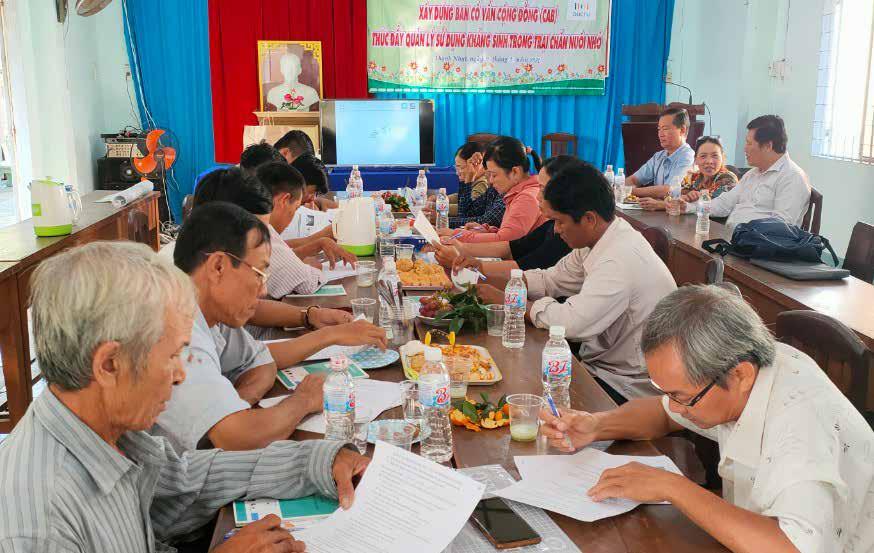

Project Summary
This project aimed to identify feasible solutions for promoting the practice of writing a farming diary. The aim of the farming diary was to improve recording antibiotics usage on-farm and its expenditure, which in turn will improve the awareness toward responsible use. To do that, we established and developed capability for the Community Advisory Board (CAB) who would act as a bridge between the research group and the communities involved in the 27ZN research.
The project’s activities, taken place between December 2020 and March 2021, included building the CAB, organizing training workshops for CAB’s members and inducing monthly group meetings among CAB’s members for maintaining public engagement and commitment.
Our partners included managers from the COCOON project from Zoonoses (OUCRU), Tien Giang Sub-department of Animal health and husbandry, Thu Dau Mot University, Thanh Nhut commune People committee, Farmer-Union, Women Union, Youth Union at communal level and chicken smallholders in Thanh Nhut commune.
Three main results of this project are:
● Thanh Nhut commune has a Community Advisory board (CAB), who are engaging in activities to promote safe farming practices, including reducing antibiotic use on farms against antibiotic residue and resistance.
● Members of the CAB were trained to increase their knowledge of antibiotic use and resistance and motivation for reducing ABU and tracking antibiotic volume used for animals.
● A farming diary form was revised friendly and feasibly for promoting the practice of daily tracking farming activities, including noting the volume of antibiotics used for animals.
Awarded: $ 4905 (2020 - 2021)
Link: https://www.youtube.com/watch?v=_71wAck-9qQ
Phan Nguyen Quoc Khanh, study doctor, OUCRU HCM
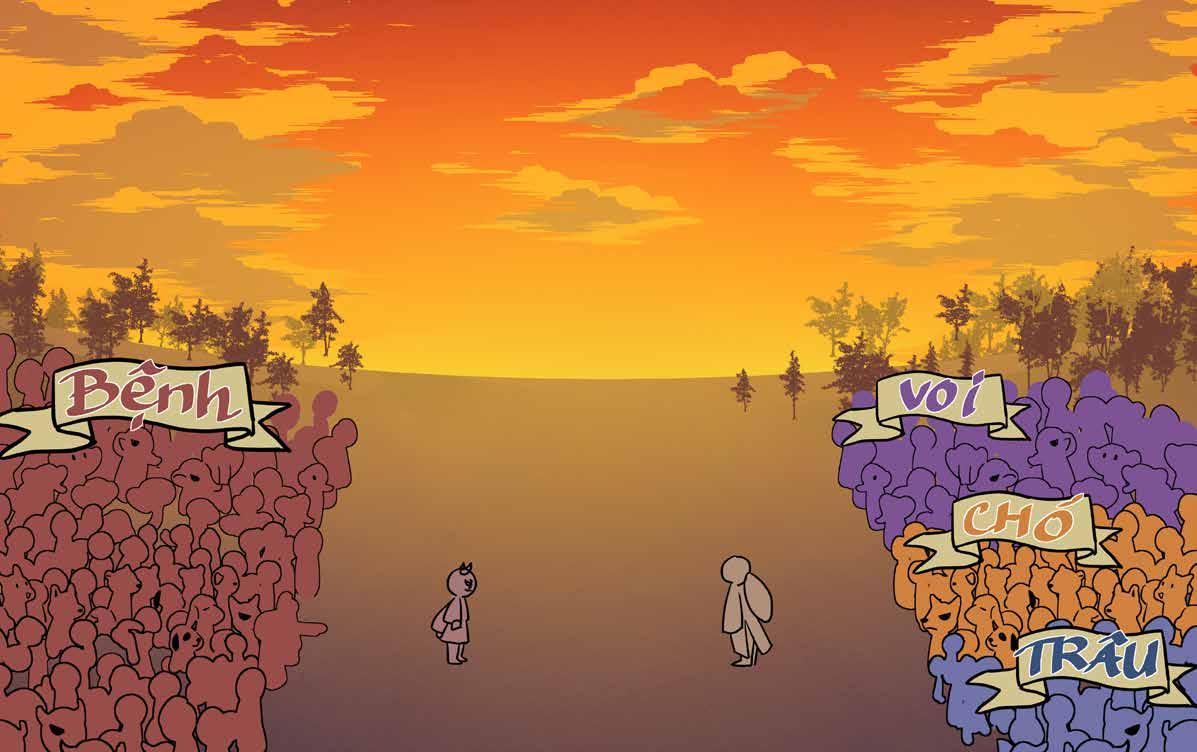

Project Summary
In Vietnam, although vaccination can provide a safe and effective solution to prevent infectious diseases and a national vaccination program has been available since 1981, infectious diseases remain a public health burden.
This long battle requires cooperation from many disciplines and it is vital to inform the public about what they can do to protect themselves and their loved ones. As researchers, we can help by delivering more accurate and easy-to-understand pieces of information and spreading these to as many people as possible. In the context of healthcare communication, infographics help readers process and understand complex information quickly. This project so far has created 4 issues of comics with a story line on how a village defends against personified communicable diseases. We also created a draft trailer to catch the initial attention of our potential audience before the series premier. With the difficulty and negative effect of the pandemic, the project team is currently struggling to finish the 5th issue. The 5th comic will introduce the character of Pertussis and how to prevent the disease. We are planning to publicly release the continuity of the main story line to 10 issues. The first comic issue is to be premiered when we have the 7th issue finished. This would allow us to print physical copies and disseminate to hospital networks when the normal services are returned.
The 4 issues created thus far:
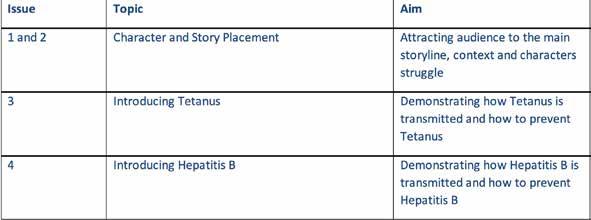
This project was given an extension due to Covid-19 related delays and is still ongoing.
Awarded: $ 9000 (2020- )
Link: Materials
Dr Ungke Antonjaya, Senior researcher, EOCRU Indonesia
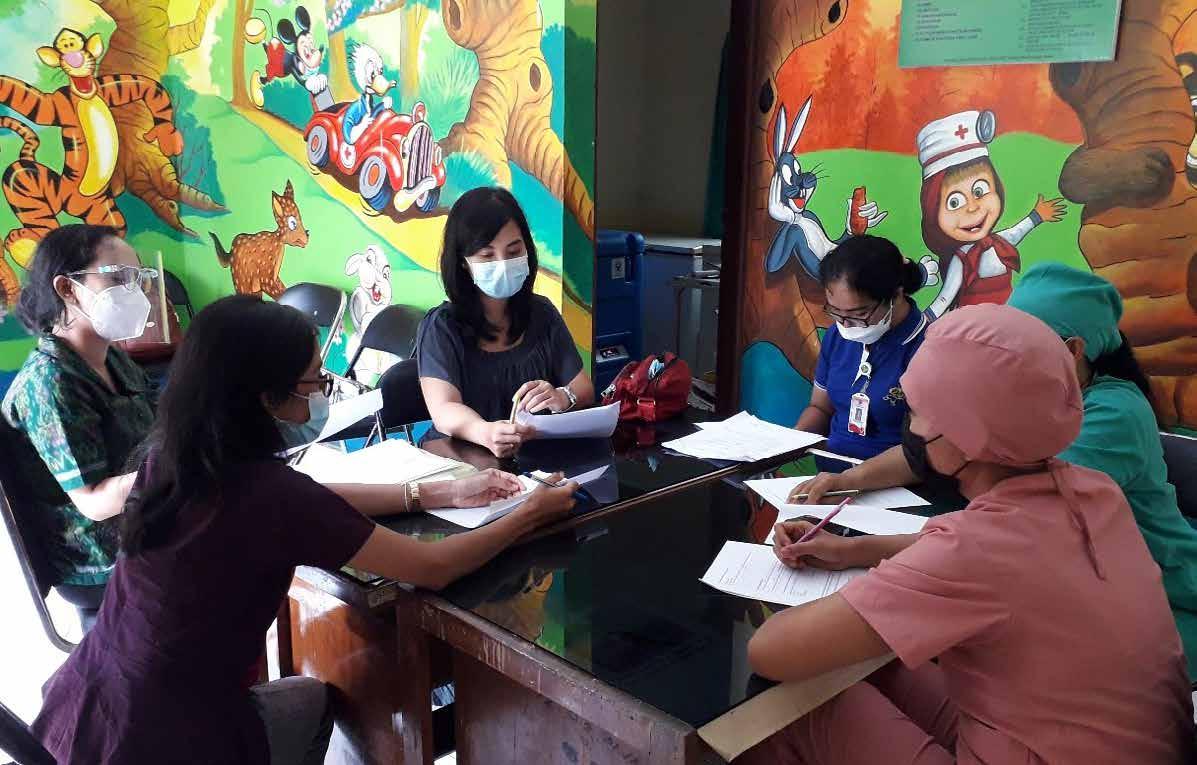

Project Summary
Children vaccination coverage in Indonesia is insufficient, leading to regular outbreaks of vaccine-preventable infections, such as measles and diphtheria. The Indonesian government runs a free-of-charge vaccination program, but the compliance to this program is left to the initiative and responsibility of the parents or caregivers. There is a need to develop and implement smart and innovative tools to remind parents of the vaccine schedule, while at the same time improve vaccination literacy and awareness as well as vaccination coverage.
This project aims to engage with parents/caregivers to do a survey through interviews with parent and health practitioners to explore their perceived obstacles and needs, and to use these insights to design and implement a phone-based mobile application to support vaccination schedule adherence, record medical history and known medication allergies, and improve vaccination
This project was given an extension due to Covid-19 related delays and is still ongoing.
Awarded: $2,500 (2019 -)
Dr. Sonia Lewycka, senior researcher, OUCRU Ha Noi
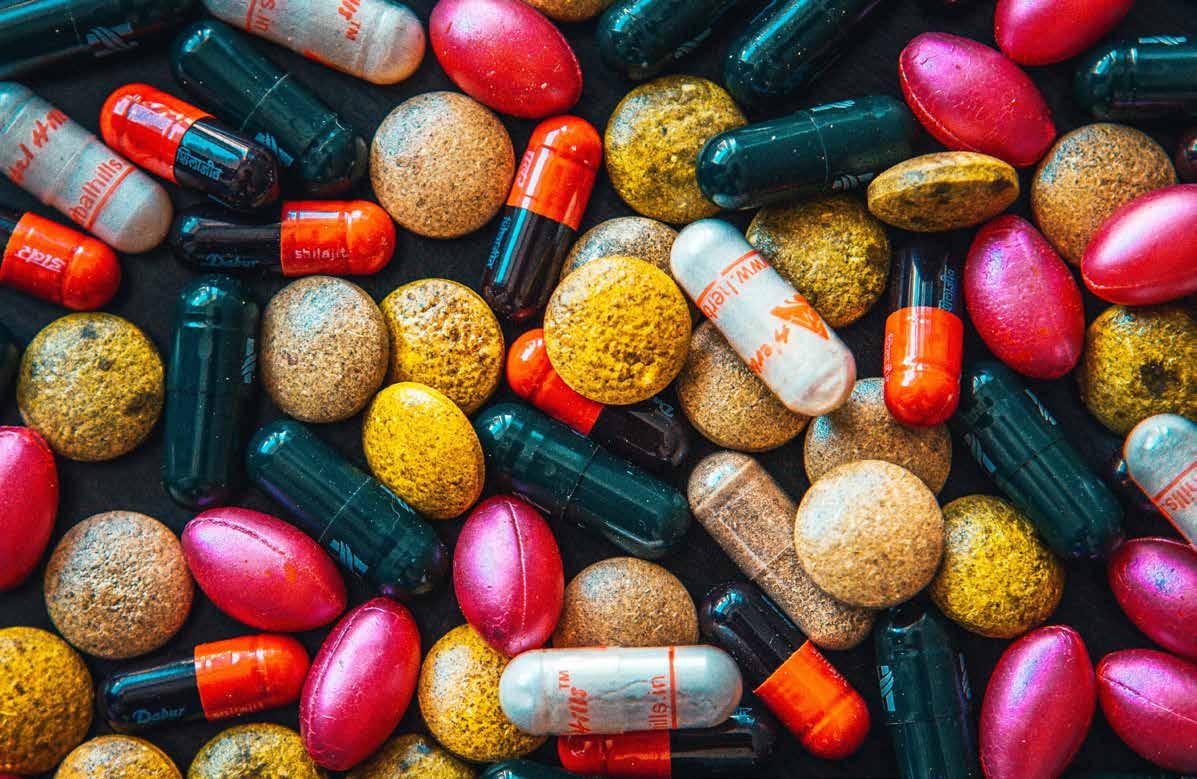

Project Summary
This research team is implementing a cluster randomized trial of communitybased one health interventions to reduce inappropriate antibiotic use. One of the interventions in this trial will use Participatory Action Research groups to bring community members and farmers together to discuss the current situation and come up with collective solutions to improve antibiotic use.
This project is to enhance community engagement in these groups by facilitating forum theatre and photovoice activities in each of the 16 communities. Community groups will create dramas and take photos of their experiences of illness, healthcare seeking and antibiotic use. They will bring their photos together to discuss why they took them and what meaning they have for them. Then the group will together select the best photos to display in a community photo exhibition along with a performance of their dramas. The best performances and photos from each community will then be selected for an exhibition in Hanoi. We will also work with a local designer to create picture cards and other engagement materials for continued use by the PAR groups.
This project was given an extension due to Covid-19 related delays and is still ongoing.
Awarded: $9996 (2020 – )
Engaging with leprosy-endemic communities in Central Java and Papua to enhance case finding, recruitment and retention in the MetLep Trial
Marlous Grijsen, researcher, EOUCRU

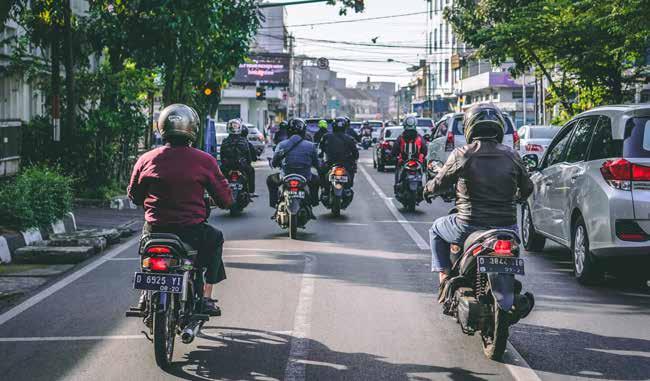
The management of leprosy is complicated by the development of reactions, which are unpredictable episodes of exacerbated inflammation and affect up to 50% of patients with multibacillary leprosy. Reactions are the major cause of irreversible neuropathy causing deformities and disabilities leading to stigmatization and discrimination. There is an urgent need to improve treatment strategies. We therefore designed the MetLep Trial (adjunctive metformin in multibacillary leprosy) to limit the development of leprosy reactions and prevent neurological impairments.
This project aims to enhance case findings and subject recruitment into the MetLep Trial and to increase patient and public involvement in leprosy care and research. We will do this through activities which improve our understanding of the socio-health aspects of leprosy in the study areas, to improve the literacy of leprosy and conduct of clinical trials in affected populations. The project will be executed in two phases: Phase 1 includes stakeholder mapping; knowledge, awareness and practise (KAP) survey; and establishment of a community advisory board. Phase 2 includes development of a public awareness campaign for lay audiences; and participatory action research approaches to ensure sustainable benefits of the trial over time (not within current budget).
Expected project outcomes are i) enhanced awareness to recognize early signs of leprosy/reactions and seek appropriate care; (ii) involvement of patients/ relatives identifying needs and solutions; and (iii) optimal case finding and study recruitment. These outcomes combined will contribute to removing barriers in the care cascade and improving health outcomes for people with leprosy in Indonesia.
This project was given an extension due to Covid-19 related delays and is still ongoing.
Awarded: $ 9978 (2020 -)
“Behind the scenes of OUCRU” featuring the MORU/OUCRU
thesis competition
Leigh Jones, Head of Training, OUCRU HCM
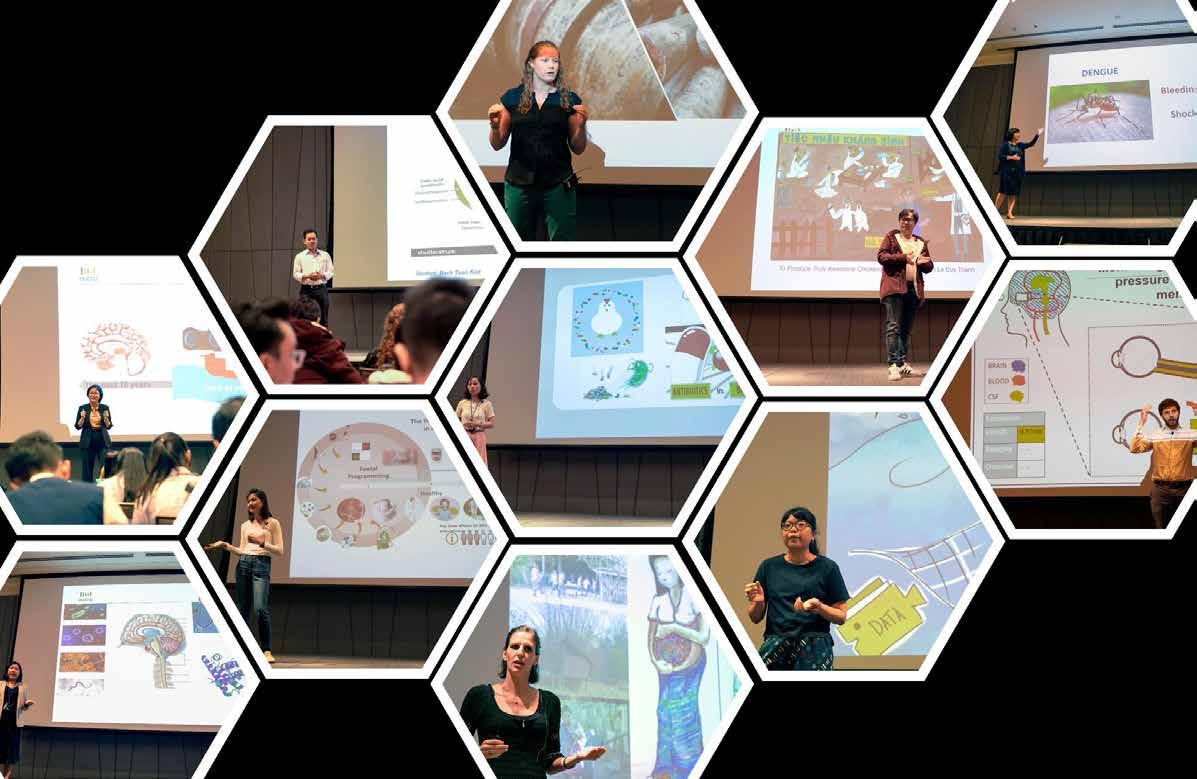
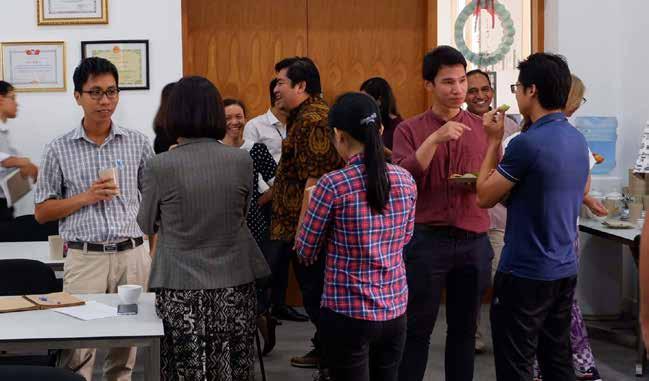
Project Summary
“Behind the scenes at OUCRU” will provide STEM-specialist high school pupils with a taste of life as a research scientist during a visit to OUCRU. PhD students of OUCRU shall give a short presentation on “My Life as a Scientist” to describe their path from school pupil to scientist, bringing this to life with funny stories and photos. This will be followed by a question and answer discussion allowing pupils to find out more about science as a career and to ask any burning questions they may have about infectious diseases.
The centerpiece of the event is the Three-Minute Thesis (3MT) competition celebrating the exciting research conducted by PhD students. The 3MT cultivates students’ academic, presentation, and research communication skills. Importantly, the 3MT encourages PhD students to explain their research in a language appropriate to a non-specialist audience and to inspire future scientists. Attending high school pupils will also play a key role by voting for a “People’s Choice Award” to present to their favourite speaker. Award winners will receive prize money to spend on training or conference travel.
A networking lunch will take place to enable relaxed discussion between our PhD students and future scientists. We will provide fun props, post-it notes and an OUCRU “photo-booth” to encourage pupils to share their visit on social media and showcase the fun-side of OUCRU. The most creative photo shall be rewarded with a one-week internship within the research teams at OUCRU which we hope shall further achieve our aim of inspiring young people to pursue a career in science.
This project was given an extension due to Covid-19 related delays and is still ongoing.
Awarded: $ 3800 (2020 -)
“What matters most to me?” A participatory project to understand patient experiences of critical care at the Hospital for Tropical Diseases
Angela McBride, PhD student, OUCRU HCM


Project Summary
This project aims to improve both patient and staff experiences in the ICU. The project will engage with key stakeholders at the hospital and build on previous work in the public engagement department empowering nurses to drive care improvements in their departments. It will also build capacity in nursing staff around protocol preparation, interview techniques and dissemination of results. This, to our knowledge, will be the first ICU nurse-led protocol to be presented to the HTD scientific committee.
The project has three major objectives:
● To facilitate the nurses at the hospital to gain the interview skills, develop the agenda for, and conduct interviews/focus groups with patients who have recovered from critical illness, with the goal of understanding the patient experience in intensive care.
● To facilitate nurse engagement with patients through a forum for the bidirectional exchange of ideas between patients and their caregivers around the theme of ‘what matters most to me - the patient experience in the intensive care unit’.
● To summarise findings in a positive manner, and support nursing staff to develop next steps, and set joint nursing and patient-oriented objectives for subsequent quality improvement projects to improve the patient experience.
We intend to hold a ‘returning patients’ event where patients will be invited to return to share experiences with nursing staff through facilitated small-group activities. Interested patients will also be invited to submit self-recorded videos on the theme of ‘what mattered most to me when I was in intensive care’. Project outputs will be disseminated by multiple media: video, written dissemination, oral presentation, social media. We will also hold a specific feedback session to support HTD nurses to identify and select areas for change or improvement.
This project was given an extension due to Covid-19 related delays and is still ongoing.
Awarded: $ 4700 (2020-)
Châu Vinh, Research Assistant, OUCRU HCM

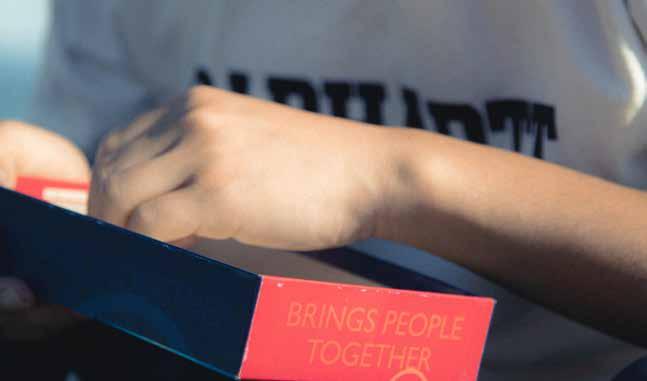
Project Summary
As rich as the Vietnamese cultural history, local board games have been an essential part for family and friend relationship growth during special occasions. We are looking to develop a board game with the focus on how clinical research deal with viral infection to raise understanding between clinical scientists and the public.
In order to maximize engagement from future players, game development will include both clinical scientists and our targeted audience college students of medical and scientific background. This inclusion will allow the earlier development phase to input barriers, ideas, rationales of both parties and integrate them into the core mechanism of the game. Also, game design will emphasize on simplicity, mass appeal and fun with a backbone of scientific concepts. With multiple sessions in between, game development will have three main phases core team concept brainstorm, prototype review and balance control through invitation playthrough with external parties.
There will be two versions of the final game, a normal version and a braille one which we wish to grant another scientific access to people with vision impairment. They will be distributed to partners of PCE’s existing network, where a dissemination strategy will be discussed further with the school engagement and project team in the future. The vision we have at the moment of writing is the game will act as an attractive and educational medium that can crack the understanding barrier to clinical research for students.
This project was given an extension due to Covid-19 related delays and is still ongoing.
Awarded: $ 5500 (2020 - )
Dang Duy Hoang Giang, research assistant, OUCRU HCM


Project Summary
Engaging infectious disease modelling research to the community is particularly challenging as the work includes maths, which seems to be abstract to many people. On the contrary, the subject can be well-explained with related good stories and its application. “The Rules of Contagion: Why Things Spread - and Why They Stop” by Dr. Adam Kucharski is an outstanding book that is clear and concise about the underlying mechanism of disease dynamics in layman terms. Dr. Kucharski is a mathematician by training and now works at LSTMH, and his book is published by the Wellcome Collection. Such a casual science book like Kucharski’s is astonishingly unavailable in Vietnam.
This project is to create a science book reading community among the young Vietnamese generation. Though the target audience is not limited to any group, we put more focus on delivering the project to students and early career employees. Vietnam has a young population. With internet accessibility is significantly high, youngsters have various sources of entertainment. However, most of these sources lack scientific education. Book reading is a classic hobby among the population. Nonetheless, reading culture is poor in Vietnam, especially when it comes to science-related documents. This proposed project aims to engage the young Vietnamese generation with science, through scientific-related book reading.
Our goal is to create a healthy playground for science curious minds. In particular, the aim is to discuss, explain and exchange knowledge of infectious disease modelling to the public through a series of events and workshop. We utilise Kucharski’s book as reference and the book contents will be the centre in our discussions. Ultimately, we hope this project lays the foundations for future related activities expanding to other fields of science.
This project was given an extension due to Covid-19 related delays and is still ongoing.
Awarded: $ 2500 (2020 -)
Lam Hong Bao Ngoc, Research Assistant, OUCRU HCM


Project Summary
Indeed, clinical trials in children are however, in the majority of cases, children who participate in these clinical trials do so in a passive way where their voices are not always heard or acknowledged. In fact, there are very few child advisory committees associated with the operation of paediatric trials. Where they have been implemented such as the COMRU project with the Angkor Hospital for Children’s Young Persons Advisory Group, not only have they provided children with a voice but they have also led to unique and eye-opening insights. https://mesh.tghn.org/articles/case-study-angkor-hospitalchildrens-youngpersons-advisory-group/. Therefore, we propose to establish a children advisory board for the SURE trial (a RCT on shortened intensified anti-tuberculosis and anti-inflammatory therapy in children with TB meningitis) recently initiated at PNT, in order to allow for valuable insights and feedbacks that will help us improve the trial operations.
In this project, 8 to 12 children, consented and enrolled in the SURE trial will be invited to join the Child and Adolescent Advisory Group (CAAG). Children aged from 10 to under 15 years old, living in the surrounding area of Ho Chi Minh city, and having given AF independently will be invited to the project. The project is aimed to last for 1 year. There will be 3 meetings during the project period. Meetings will be set up at a coffee shop (or other appropriate venue) where the children may feel more comfortable than a hospital meeting room. In each meeting, 2 facilitators will lead the discussion with the children. For every meeting, the children’s relative will receive the transportation reimbursement and the children will get a small gift. Furthermore, a visit to OUCRU will be organized for those children; the purpose of the visit is to introduce the OUCRU programme and how OUCRU conducts the clinical trials. We hope it will allow the children to better recognize and understand their role and contribution to research.
This project was given an extension due to Covid-19 related delays and is still ongoing.
Awarded: $ 3000 (2020 - )
Cai Ngoc Thien Huong, Research Coordinator, OUCRU HCM

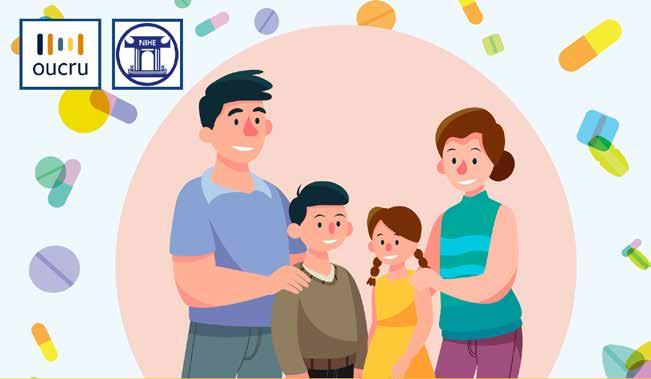
Project Summary
OUCRU Hanoi has been conducting several community-based interventions about antimicrobial resistance in Nam Dinh province but we are challenged by the awareness of participants about this problem because they are not considering antimicrobial resistance as an actual problem in their area to take actions.
Therefore, this project will collect and design a storybook in which illness narratives are collected from patients and doctors who have treated patients infected by resistant bacteria with several consequences at individual and local level. This storybook will be chosen carefully by OUCRU staff and advisors as well as revised by experts from Nam Dinh to ensure their content and design is suitable with the OUCRU research context and cultural context in Nam Dinh. People will be impressive about real-life stories happening around them, in their community and with their acquaintance related to antimicrobial resistance: It is closer than you think!
These messages would be spreading through health promotion events organized at Hai Hau, Xuan Truong and Nghia Hung, the main research community of 30HN. This project aims to raise awareness about antimicrobial resistance and their consequence in our research community and there would be more people taking part in our community-based interventions in Nam Dinh, especially Aim 3 and Aim 4 of 30HN. The story authors, the community and the researcher will gain benefits from this public engagement activity.
This project was given an extension due to Covid-19 related delays and is still ongoing.
Awarded: $ 5000 (2020 - )
Ashata Dahal, PE Officer, OUCRU Nepal
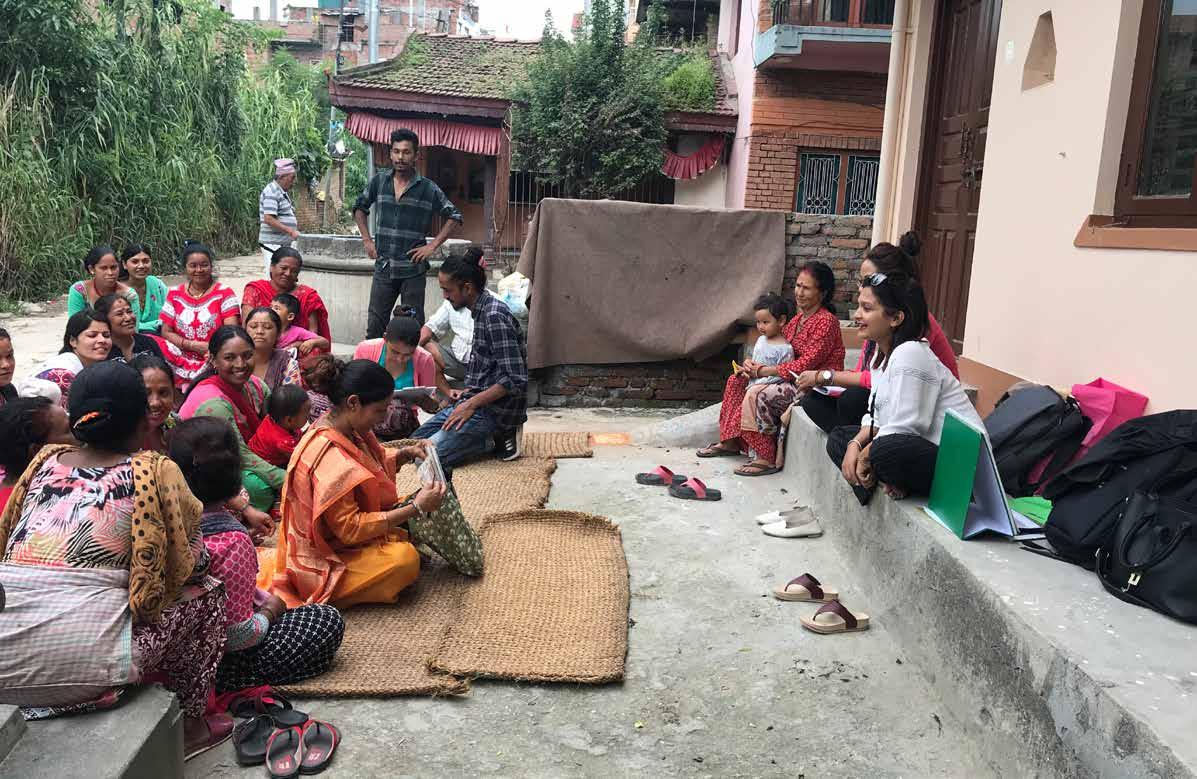
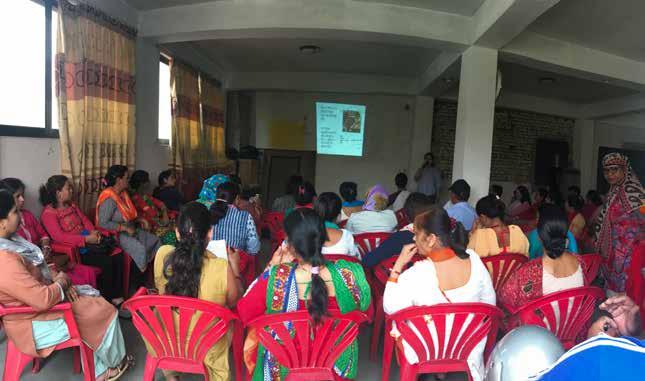
Project Summary
Typhoid is an important public health problem prevalent in developing countries including Nepal. OUCRU-NP, since its inception in 2003, has mainly focused its research work on it. Through various activities like science café and science theatre, the public and community engagement team at OUCRUNP has been engaging with the public on different water-borne diseases to interact and inform the public about the diseases.
However, Information, Education and Communication (IEC) materials, specifically typhoid catering for the Nepali population is sparse. From my own experience, conducting public engagement activities is difficult because of a lack of IEC material. Hence, I propose an animated computer visual art, “Tales of Typhoid”, revolving around a Nepali character whose story will include topics like burden of typhoid, modes of transmission, signs and symptoms, prevention and treatment of typhoid in cultural appropriate settings. The video of a running time of 5-7 minutes is expected to inform the target audience and start conversation about the disease. Tales of typhoid will be uploaded to a YouTube channel and will be shared via social media. It will also be screened in the community (e.g. in mothers’ group meetings) and to students and teachers in schools.
Once created, this visual art will support to conduct future engagement activities for the ongoing typhoid-related research studies at OUCRU-NP. In future, a blog/website on typhoid and other infectious diseases will be developed in Nepali language as a continuation of this project.
This project was given an extension due to Covid-19 related delays and is still ongoing.
Awarded: $ 8275 (2020 - )
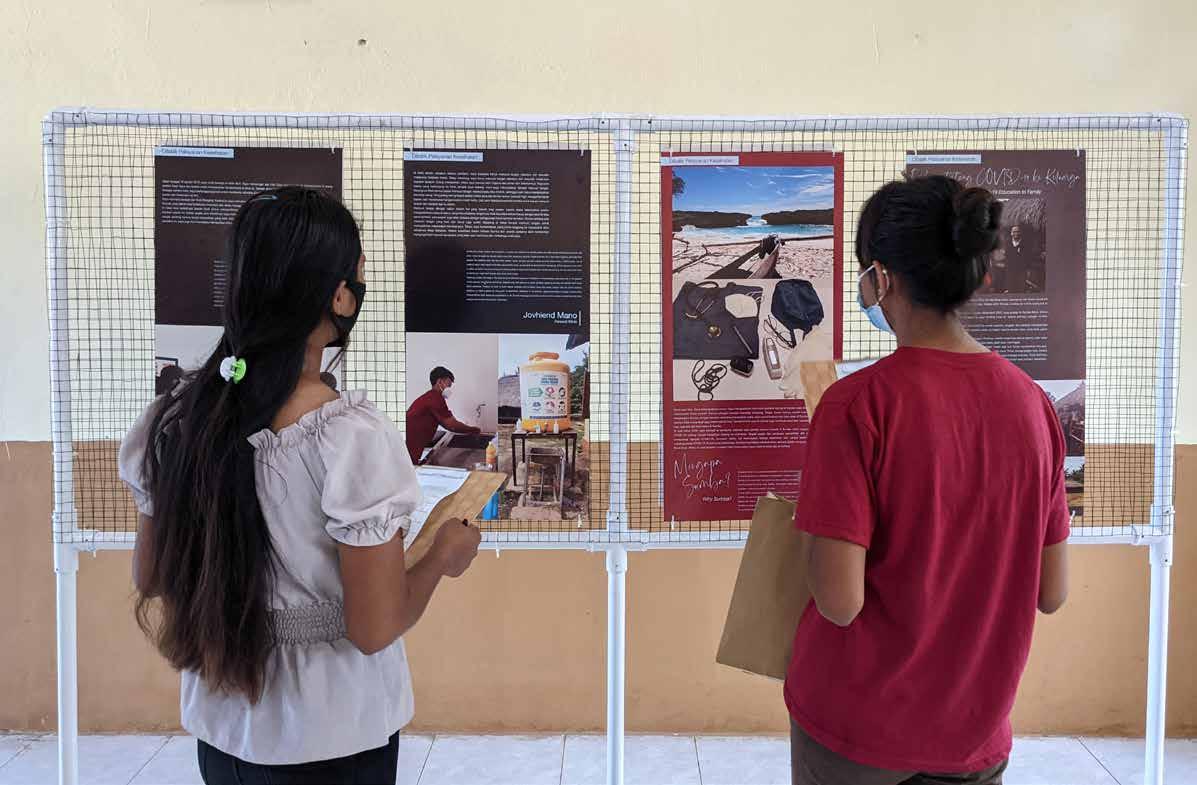
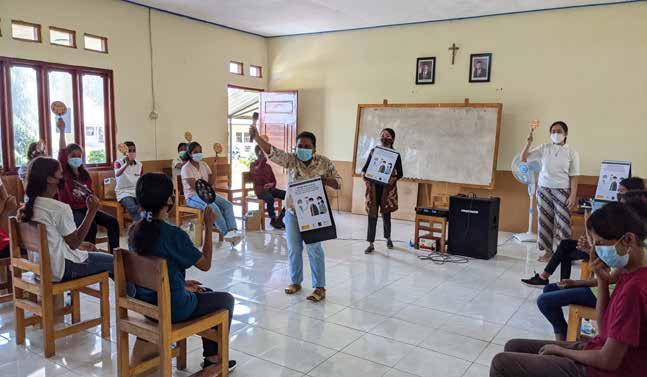
Project Summary
The Journal of Stories from the Islands or Catatan Cerita dari Pulau is the dissemination of the SPEAR digital diaries activity where we do film screening and photo exhibitions made by the digital diaries participants from 3 sites in Indonesia. The dissemination also gives an opportunity to the researchers to gather feedback and reflections from the community to enrich the qualitative research that we are working with currently on the impact of COVID-19 on the community and healthcare workers.
In addition, to support the community’s knowledge on COVID-19 vaccination and reduce rejection, we will provide an education session on that issue. This session will be part of the exhibition mentioned above and through some community events such as Sunday mass in the church or the live talk show on the local radio.
Finally, this project also would like to support the community leaders to develop their preparedness plan for the future pandemic/endemic by providing 2-day workshop and discussion with the village leaders, religious leaders, and cultural leaders. It is important to ensure community readiness in the future by learning from the current actions taken. We will identify 10 to 15 leaders who are willing to initiate the community-based preparedness plan which is still in line with their local culture, traditions, beliefs, and values.
This project was given an extension due to Covid-19 related delays and is still ongoing.
Awarded: $ 9000 (2020- )
Vu Thi Lan Huong, Post doc researcher, OUCRU Ha Noi
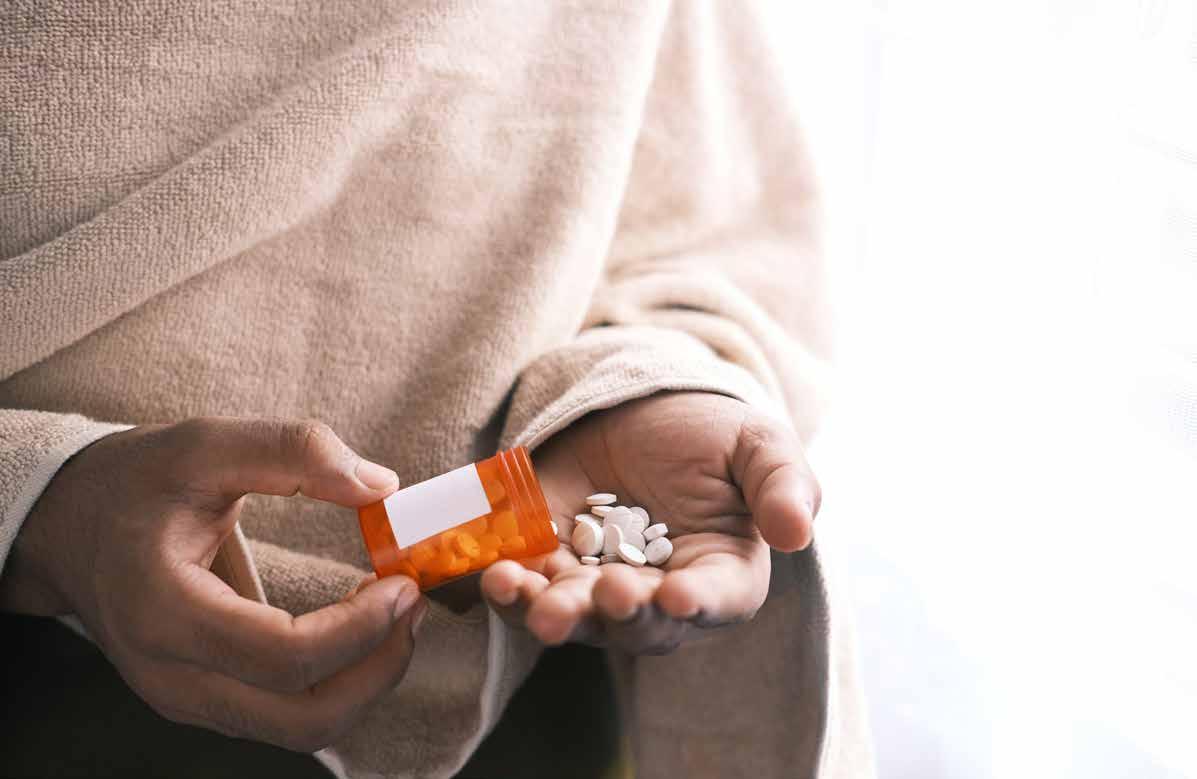
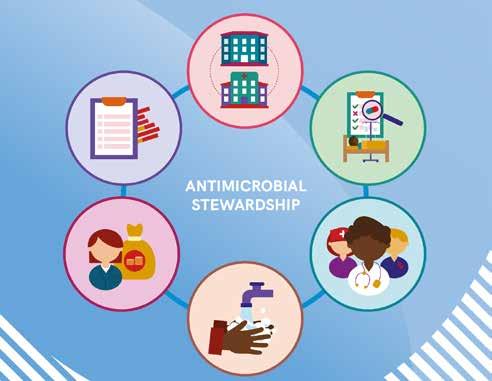
Project Summary
Antimicrobial stewardship (AMS) programs have been implemented to control antimicrobial resistance (AMR) through improving antibiotic treatment of patients. However, despite being the primary, albeit indirect and/or delayed, beneficiary of AMS, patients are often not involved in the program. There is also a lack of understanding on how to involve medical students who will become the key players in AMS. This proposal aims to understand the perceptions and willingness of these groups to engage with AMS in hospitals through group discussions and to explore the feasibility of establishing and using a community advisory board (CAB) as a method for patient engagement to improve AMS programs.
We plan to recruit 15 individuals with lived experience of an infection requiring antibiotic treatment and 15 final-year medical students at NHTD and VTH to participate in group discussions. The discussions will be initiated by a video and a print leaflet for each participant with key information on antibiotic use, AMR and AMS, and then be facilitated by the Health Belief Model [1, 2] with questions to guide through the process of exploring perceptions on the issues, benefits of and barriers to engaging in AMS, and opportunities for engagement in antibiotic treatment and CAB (for patients) and in training and designing AMS programs in hospitals (for students).
The main expected outcomes from this project are to inform future patient engagement activities in AMS, and identify approaches for involving students in training and the design of AMS programs in hospitals.
This project was given an extension due to Covid-19 related delays and is still ongoing.
Awarded : $ 4998 (2020 -)
The OUCRU Seed Award programme has inspired many OUCRU researchers to consider how to better engage with their research communities. The award scheme attracted a wide range of researchers from senior researchers, PhD students to junior researchers (Table 1). More importantly, these awardees continue to encourage and motivate other researchers in their team to participate in the public engagement activities of their projects. Particularly, from 2015-2021 the awardees involved 59 other researchers and collaborators to conduct their engagement projects. There has been a growth of interest in engagement from research staff, as Figure 1 presents - the number of projects that are researcher-led is now greater than those led by the PCE department.
Table 1: Number of awardees
Awardees Numbers of awardees Numbers of applications
Senior Researchers 15 19
PhD students 6 12
Research Assistants 7 14
Clinical Trial Coordinators 4 5
Other departments 7 10
Total 39 60
Figure 1. Number of PCE projects led by OUCRU PCE department, collaborators and researchers (cumulative totals until 2019)
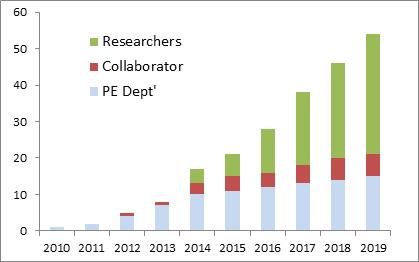
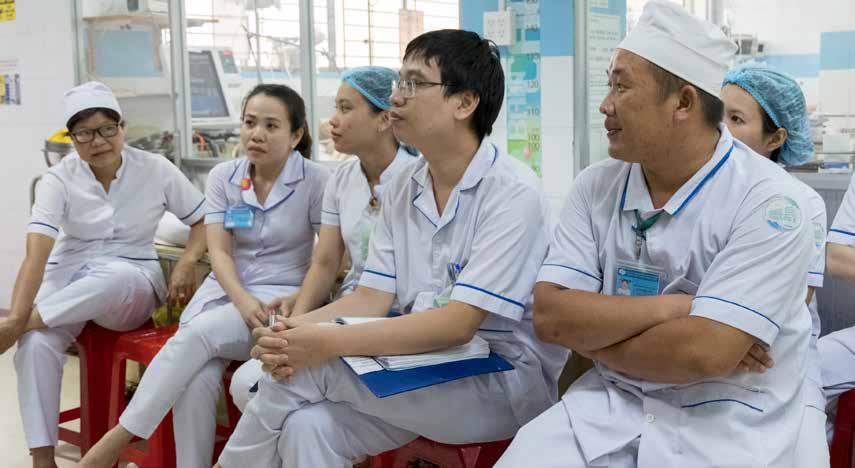
We asked each researcher to evaluate their projects. Most did this by collecting metrics of the number of people reached through the project, and by conducting end of project interviews. Some feedback is presented here:
“Qualitative evaluation shows that staff and patients are very supportive and enthusiastic about the program. Patients feel there are many benefits to this and both staff and patients feel the printed material and videos are helpful.”
Dr. Louise Thwaites “Feasibility and acceptability of family- led rehabilitation program for patients with tetanus project”
“This project helped us to develop 46DX study – a community- based study: “Active surveillance of Zika virus and other arbovirus infections in Aedes mosquitoes and humans in HCMC”. We understood how difficult to conduct a study in community.”
Dr. Lauren Carrington “Motivations and limits driving participation by healthy individuals in communitybased dengue studies project”
“This is the first time such an initiative on snakebite vulnerability and awareness was undertaken in the area. It was much appreciated by the community that we were able to reach out to.”
Dinesh Deokota “Snakebite- community views on a deadly issue”
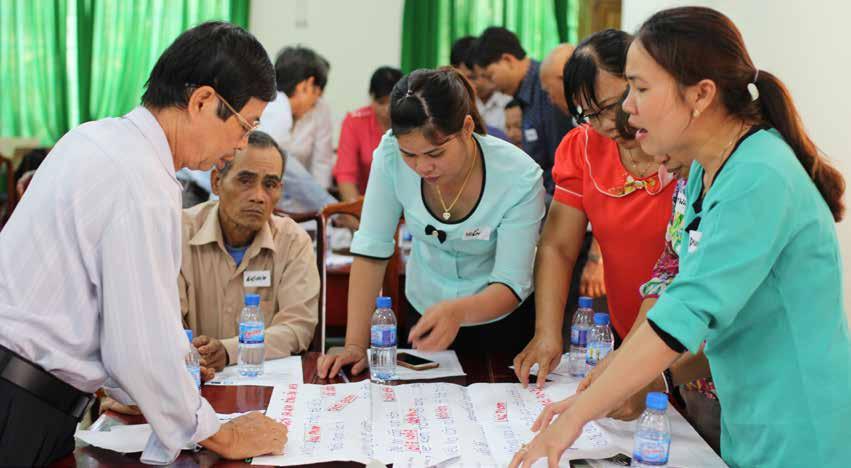
In order to evaluate the Seed Award scheme we asked researchers to reflect on their experience of conducting engagement. Some comments are presented here:
“PE projects have helped remind me of why we are doing research and who we are doing it for. Realizing that people are enthusiastic and interested in our work is also nice to hear. Public engagement in Vietnam has allowed me to gain a greater understanding of Vietnamese culture and people.
I will certainly do more PE activities in the future. think it is important to communicate with people we are working to benefit and to listen to their views and ideas”
Dr. Louise Thwaites, Senior Clinical Research Fellow
“An ultimate aim of science is to serve the public’s interest. I am more aware of that truth after approaching and applying the methods of public engagement in my current research project. I will continue pursue projects in which public engagement is an important component to increase the practical values of scientific research.”
Tran Thi Anh Thu, PhD student, Zoonosis group
“I am managing the Hepatitis C trials on Vietnamese people. The public engagement activities are quite new for me. I do not understand what is public engagement and how can I encourage people to involve the study. The PE Regional workshop is a good chance for me to deeply understand what I should do and which models I can apply.
I am interesting to do some PE activities. The PE is quite useful for my trials that provide more information to normal people and also to Hep C patients. The very first step is that submitted and received the PE see award with $6,000. I am developing the 3 TVCs and one big mural at the HTD.
I hope that it will be improved knowledge, attitude and practice of many people who come to HTD”
Dang Trong Thuan, Hep C Trials
“I had a good chance to join the 2nd PE Regional workshop in Bangkok. I had a chance to learn about other scientists projects and how they had been engaging public to their research; I also learnt how to evaluate public
engagement projects. I like the CAB model and would like to apply it to my next project. I also want to do some projects which will help students understand more about science and research”
Duong Van Anh, CNS Senior Research Assistant
“Considering of Public Engagement of a research topic (i.e. Malaria infection) meaning I am thinking of activities to bridge the sophisticated knowledge of science to the simple and applicable action for the communities.
Absolutely, I will consider conducting PE activities to in the future to disseminate the findings as one package to each research project. Just an example, the IMPROV study has been completed and result will be published in scientific journal. But another PE activities will also be done in November to invite health authorities involved in the project to discuss the findings. think this is a good pattern to be done for each research project if possible. This kind of PE activities could avoid misinterpretation of the research findings”
Ungke Antonjaya, Senior researcher, EOUCRU
PE Regional workshop in Bangkok was the very first time that had a chance to learn more about activities and projects from public engagement experts. After the workshop I could answer two questions that have been thinking about for a long time: how we can transfer knowledge and research outcomes to the people in the community to improve their health and how to make it easier for them to understand about the health issues and it risk factors? Public engagement can also break down barriers between researchers and community, build up new perspectives for researchers to make their work more useful in the future. I would like to participate in PE activities in the future since the team is very creative by holding different events which enable me to engage with people from all walks of life from school students to those who are struggling with illnesses. Those are the good ways to bring public closer to scientific knowledge that will change their behaviors toward healthier society.
Dr. Phan Trieu Phu, TB researcher
“Public Engagement for us has always been an exercise in empathy. It is about being able to live through and being able to understand particular issues that afflict and affect communities during the engagement process. During the snakebite project, we worked with communities using creative ways of engagement to help us and help the communities themselves understand the vulnerabilities they face in terms of snakebites. Our opinion of Public Engagement has remained the same during this project - it has been a two way exchange of information which has enlightened both parties on the issue and the engagement initiative has helped us and helped the communities involved in coming up with solutions to living and dealing with snakes and snakebites.
We would of course like to work more using public engagement methods as an approach to problem solving as this method does not impose solutions but rather elicits solutions from within the communities themselves. We love facilitating such initiatives would also be a very powerful motivation for us in working further with PE”
Dinesh
Deokota, Director of Media for Development
Vietnamese are not familiar with debates, and the use of this approach in decision-making. I applied and received the PE seed award to organize sections of scientific debates for two groups of students. After debating, several participants expressed that debates had allowed them to be more critical and less bias in their judgement. The award also opened doors for me not only to manage a project, but also to spread the ideas of scientific debates to other junior students. hope, after my PhD, I will continue working with the OUCRU PE group to bring science closer to the public in Vietnam.
Vu Tuan Trung, PhD student, Dengue group
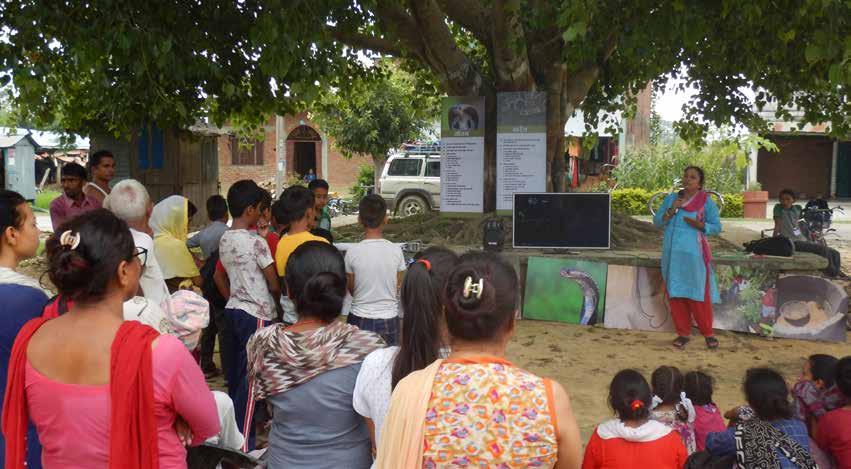
Based on the success of the first Seed Award scheme and in line with our strategic vision to increasingly embed engagement into OUCRU research studies, we will continue this scheme in the next Core award period 2022-2027. We will formalize the support given to researchers, to help strengthen capacity for engagement by offering surgeries with each awardee to help develop an evaluation plan and support in conducting activities and reporting. We will hold a regional PCE meeting to enable researchers showcase their projects and gather ideas for further engagement. At the end of each project we will meet each awardee to discuss how they might publish their projects, apply for funding or embed PCE in their research proposals.
Seed Award review panel:
Prof Guy Thwaites, Director of OUCRU
Dr Mary Chambers, Head of PCE
Ms Tran Kim Van Anh, PCE Administrator (2015-2019)
Ms Van Thuy Qui Huong, Seed Award Coordinator
Dr Abhilasha Karkey, Vice – Director of OUCRU Nepal (2015-2019)
Dr Sabina Dongol, senior researcher & Head of Lab Sciences of OUCRU Nepal (2020-)
Dr Hoang Minh Tu Van, senior researcher, OUCRU HCM (2020)
Ms Sian Aggett, external PCE expert (2015-2019)
Ms Milly Farrell, external PCE expert (2020-)
Seed Award Coordinator: Ms Van Thuy Qui Huong
Report graphic designer: Ms Nguyen Hoang Yen
Photo credits: Photographs were taken by awardees, apart from those by Pearl Gan and Nguyen Hoang Yen which are credited.
Funded by Wellcome Provision for Public Engagement 106680/Z/14/A
This work was funded by the Wellcome Trust (106680/Z/14/A)